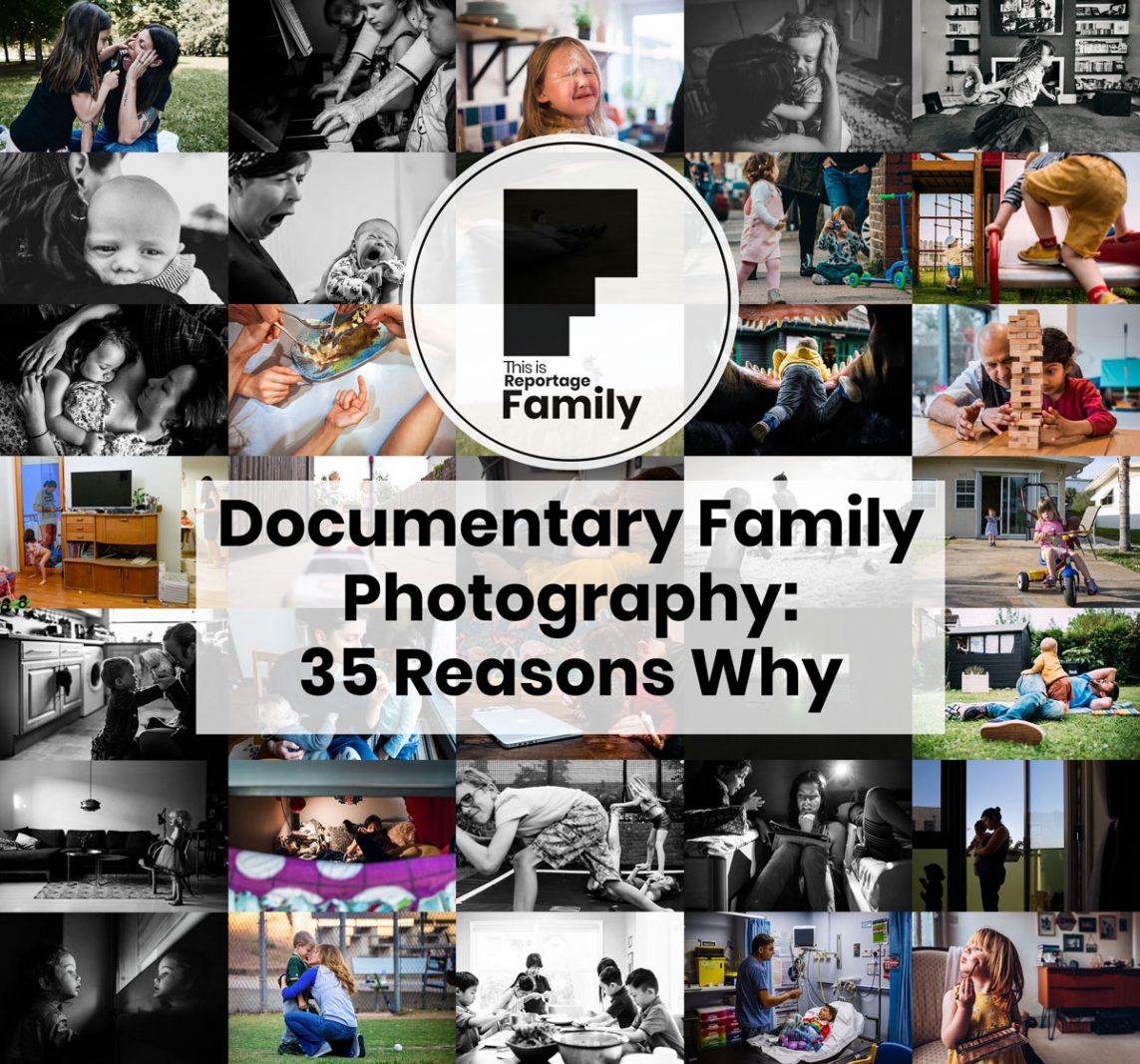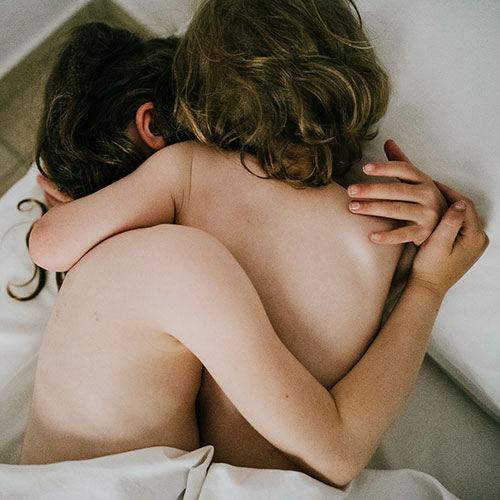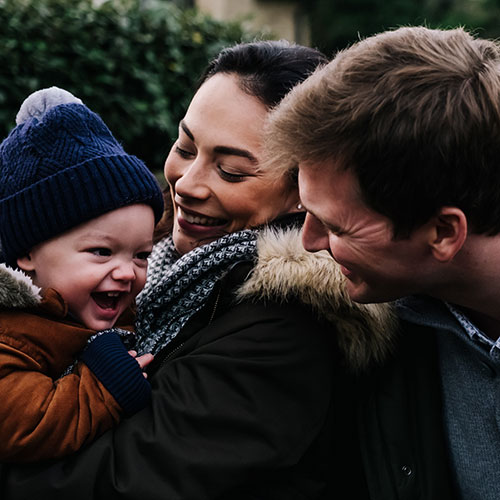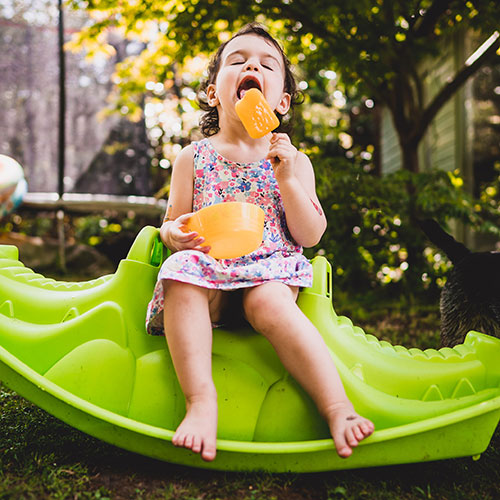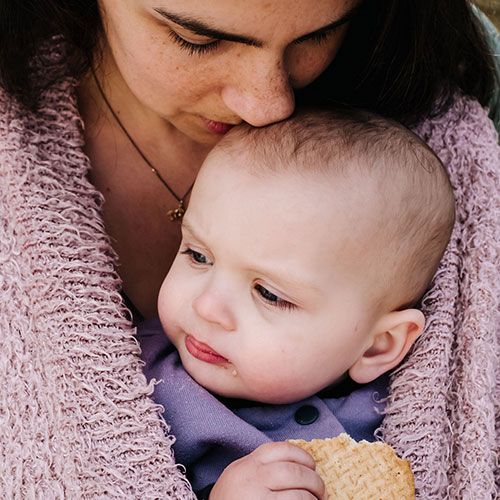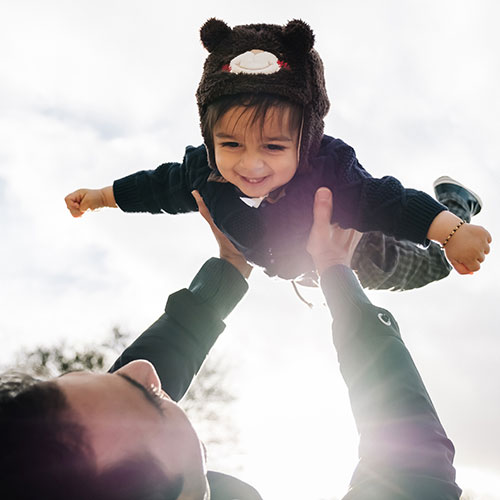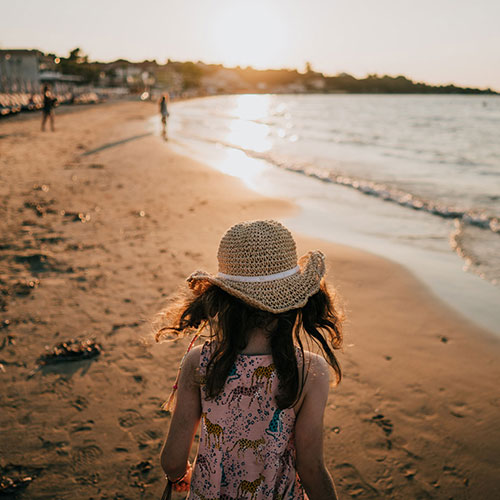Documentary Family Photography: 35 Reasons Why
“Why is documentary family photography so important?”
That’s the question we put to our members recently, and their answers – which you can read below – are totally inspiring; a mixture of personal stories and professional experiences from 35 photographers all over the world.
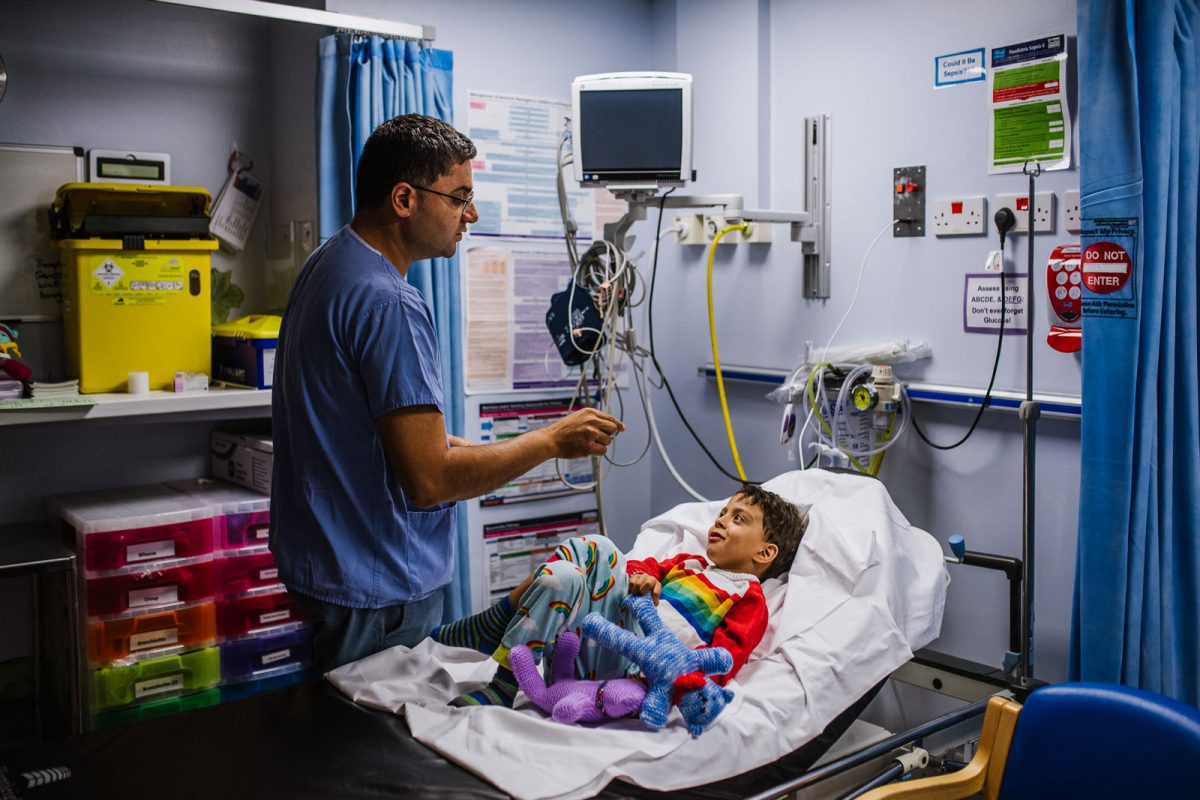
Bex Maini (UK) – Website / This is Reportage: Family Profile
“The reason I believe documentary photography is so important is because those are the photos I LOVE the most of my own family. When I look at photos of my twins, it’s the photos of MOMENTS that I treasure the most. The way their faces light up when opening a present, their first ice-cream at the beach trickling down chubby arms as it melts faster than tiny tongues can keep up, and yes, even the real tears after falling off a bike. I will never forget the time we ended up in A&E with my son after he landed on his head when he fell off the sofa – which he apparently sees as some sort of gymnastics equipment! I was so glad my camera was still in my handbag I grabbed as we rushed to the hospital. These are absolutely some of my favourite images of my kids and the things I want to remember, the good and the not so good.
Disclaimer: I only took my camera out once we’d been triaged and we knew he was probably fine, he had been asleep in my arms ’til then and yes, my husband did give me a funny look but has since admitted he loves those photos too.
Of course I still like the few “arranged” photos we have (I have some hilarious photos of the poses my daughter throws), but they’re not the ones that make me feel, that bring back the emotions and memories of faces covered in sticky marshmallows at their first campfire or the way they fall asleep in the car and the relief after what I suspect may be the first of many hospital trips!
Oh and the details, my heart really does lie in the details – the way their toes curl, the mess they make when we’re baking, muddy knees, scuffed knees, paint-covered fingers… This is why I offer these kinds of images to my clients. I want all families to have photos that make them feel, that take them right back to that time in their real lives which is all too fleeting – as cliché as that sounds, it’s so very true.” – Bex
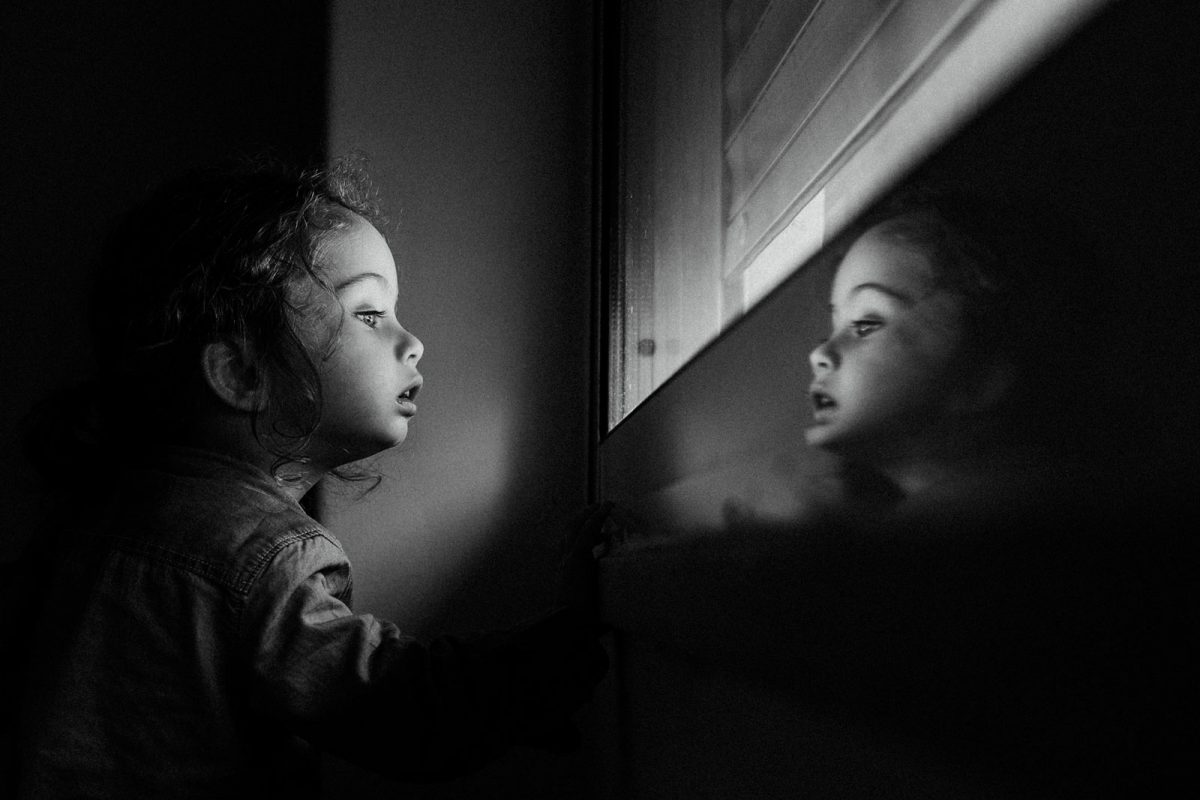
Joao Lourenco (Portugal) – Website / TiRF
“The concept of documentary family photography became important to me through the experience with my own family photography. My father was a photography enthusiast so we have family pictures ever since I was born. When we went on holiday he used to say that we should always be in the frame, otherwise it would be just a landscape photo, therefore with the same value as a postcard but with less quality.
So over the years we would always have the same kind of holiday pictures, with me, mother and sister thrown into the frame, usually looking at the camera, with me making a goofy face, my father getting angry at me and ending with another posed picture, this time with me with dry tears and a sad face. When I look at those pictures I don’t have fond memories, I don’t feel they portrait anything valuable from that moment or trip.
You’re right in thinking that this is not documentary family photography, much the opposite. Even though I’ve been into photography for over 20 years, I only became a professional photographer 6 years ago and into the documentary side of it two years later, just in time for the birth of my daughter. Since then I’ve been photographing my family regularly, sometimes on a daily basis. Now I look at pictures I took 3 years ago and I’m so glad that I got into documentary photography just in time to capture those genuine moments that tell the whole story.
It’s by comparing what I experienced as a kid and what I’m doing now as a “dadtographer” that I give so much value to the documentary side of it.
I also believe that documentary photography can be so much more powerful when accompanied with text. I first started feeling this when seeing the world press photo exhibits years ago and family photography goes along really well with a description. For example the image I’m sharing is interesting but not that strong. Unless you know that it was taken during the lockdown of the 2020 pandemic, after being stuck at home for two months and as my daughter was looking outside and about to cry because she wanted to go play with her friends.
So to me documentary photography is a way of telling stories, ideally with text to help the viewers understand the context.” – Joao
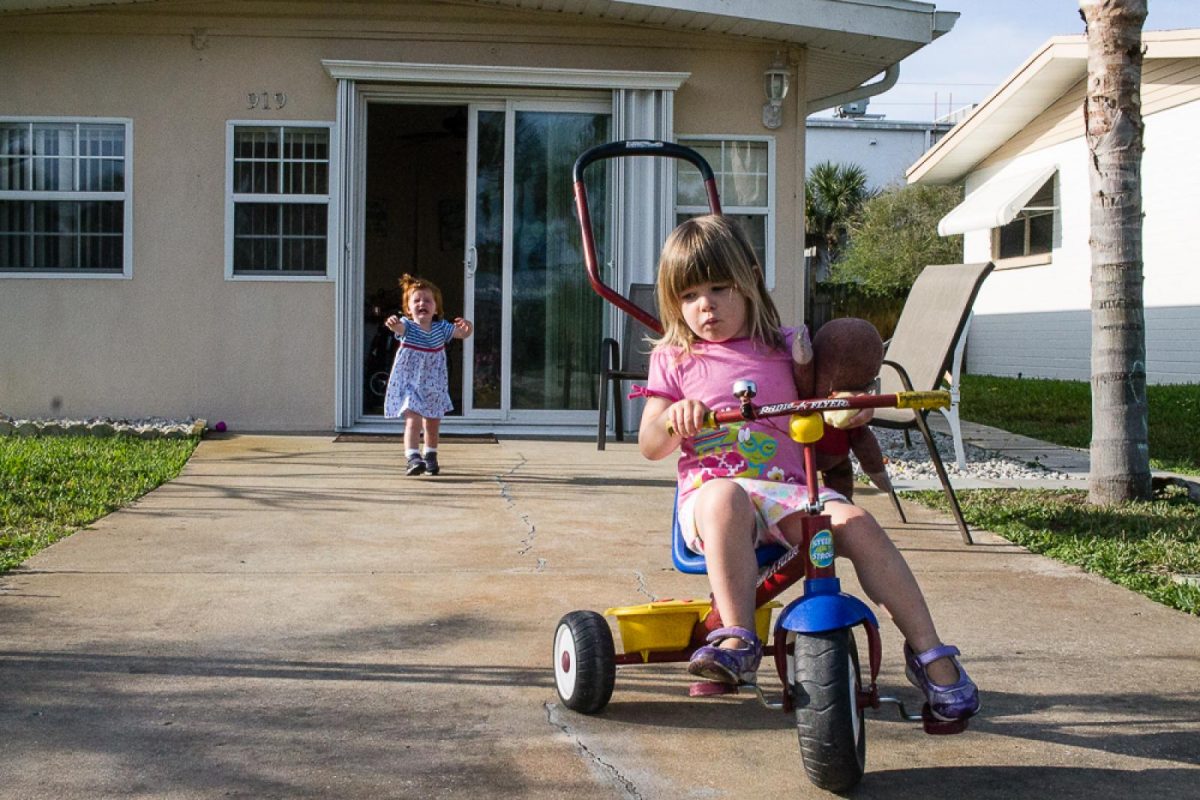
Donna Taliercio Graybill (United States) – Website / TiRF
“I was born 18 months after my sister, Pam. Anyone with a sister knows that some days you are thick as thieves, and some days you are pulling each other’s hair out. Yet there will be no one else in your life with whom you’ll share the same experiences, complicated history and tight bond as you have with your sister.
In March, my family lost Pam to endometrial cancer. The last stretch of her journey was definitely a struggle and when something like that happens to someone you love you start to think about what is truly important: Love, life and family.
Now I look at my own two daughters, also less than two years apart, and I know the greatest gift I could ever have given them is each other. I take pictures of my daughters because I want them to have something tangible to show how they lived and loved each other and grew up together. And when times get rough, or memories start to fade, I hope these photos will bring them back to the joy of their youth. That’s why documentary family photography is important to me. I love giving my family clients that opportunity as well: the chance to stop time, and capture real life in all its beauty.” – Donna
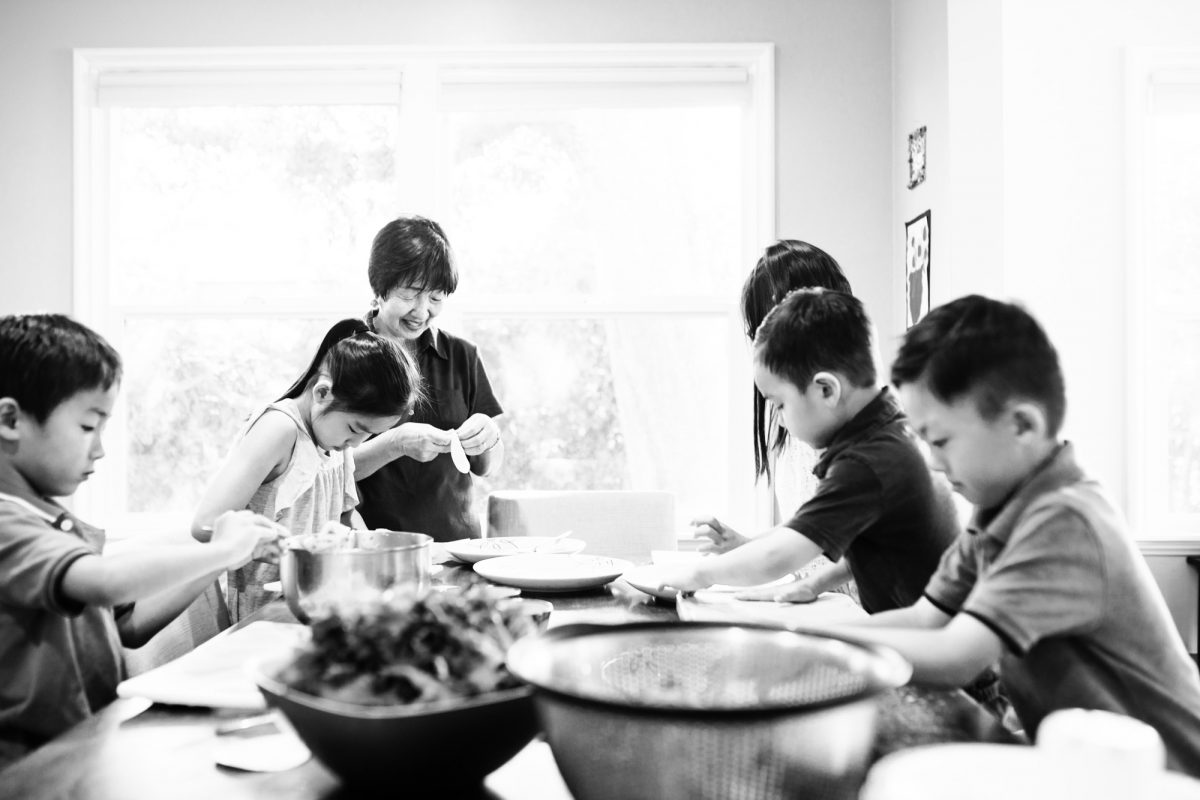
Tiffany Luong (United States) – Website / TiRF
“Documentary family photography is important because it’s like insurance. Insurance (medical, car, health, etc) is one of those things that we are so grateful for when our world gets flipped upside down, when we find ourselves in the middle of chaos, because its primary purpose is to restore order, keep us safe, resume normalcy.
I like to think about documentary family photography from that perspective because it’s memory insurance – helps preserve the now for later, keeps our kids little a little while longer, reminds us that we still have the capacity to love. I also am a big believer of the weight that photos carry in history and legacy, and our family photos bridge us back to our cultural roots and family heritage.
I have been doing a long investigation into the immigration history of my grandparents from China to Los Angeles, and because of our language barrier I have relied on photos to communicate visually my interest in knowing them and in preserving our cultural inheritance for generations.” – Tiffany
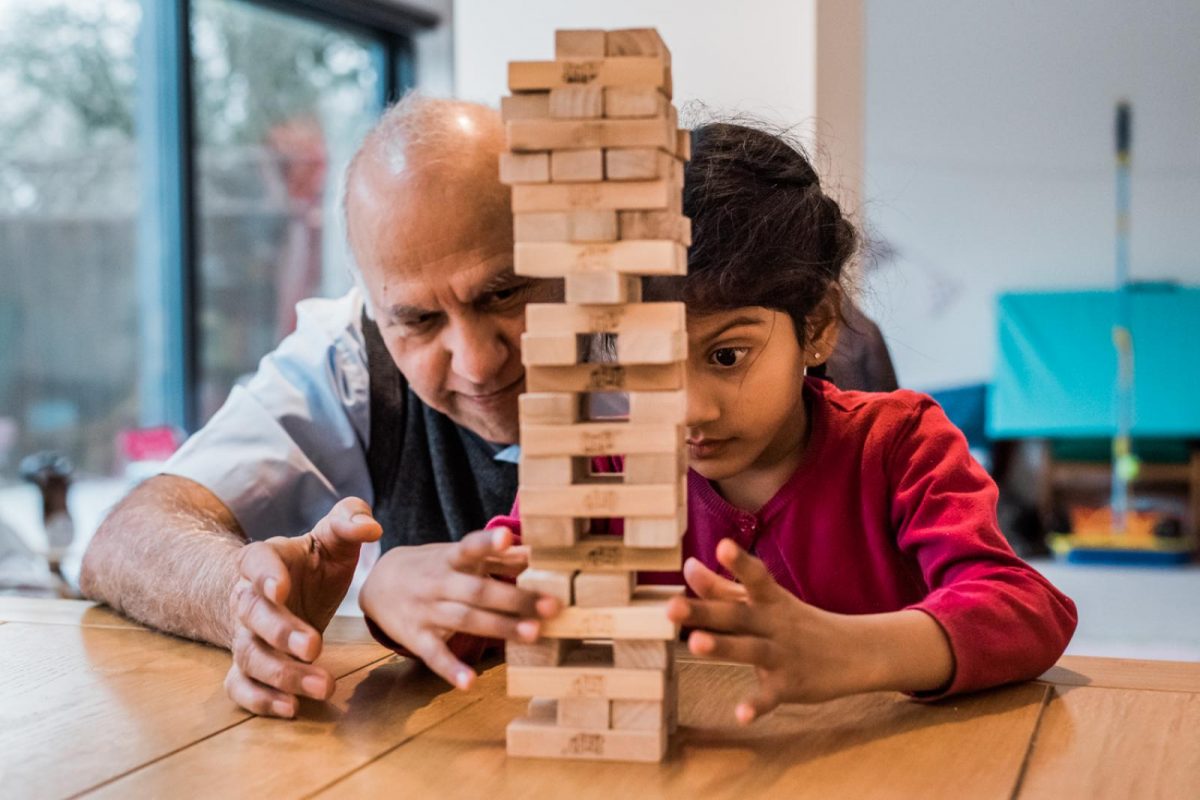
Diana Hagues (UK) – Website / TiRF
“Documentary family photography is, for me, about preserving moments in our lives that might soon be forgotten. It might seem trivial now, but in our incredibly busy lives and with our brains overloaded with information from living in a modern digital world, I’m terrified that time will take something precious from us; things that matter could get easily overlooked.
We cannot stop the unstoppable passage of time, but we can assemble artefacts such as photographs, to piece together the jigsaw of family life and form a picture. Each piece sits differently for different families, yet shaped by commonalities that are part of the real lived-in experiences that we all share, from parenting to childhood and daily routines too. They don’t all have to be breathtaking moments. In fact, I’m hugely drawn to the in-between moments, raw emotions and connections that can whisk us back in time to a certain feeling and place.
As a documentary family photographer, making images that authentically tell a story of the family is one of the joys I get to give to them. But also I can capture moments they would have missed when both parents and children are completely absorbed in one another or in themselves. Such as a mother’s hand gently stroking her child’s head or a child intently playing with their toys. Through documentary family photography, I document their individual personalities as well as the love and comfort that is given. And though some days can feel long and hard, they’ll be able to see in their photos how they are genuinely loved, which are preserved forever for future generations.” – Diana
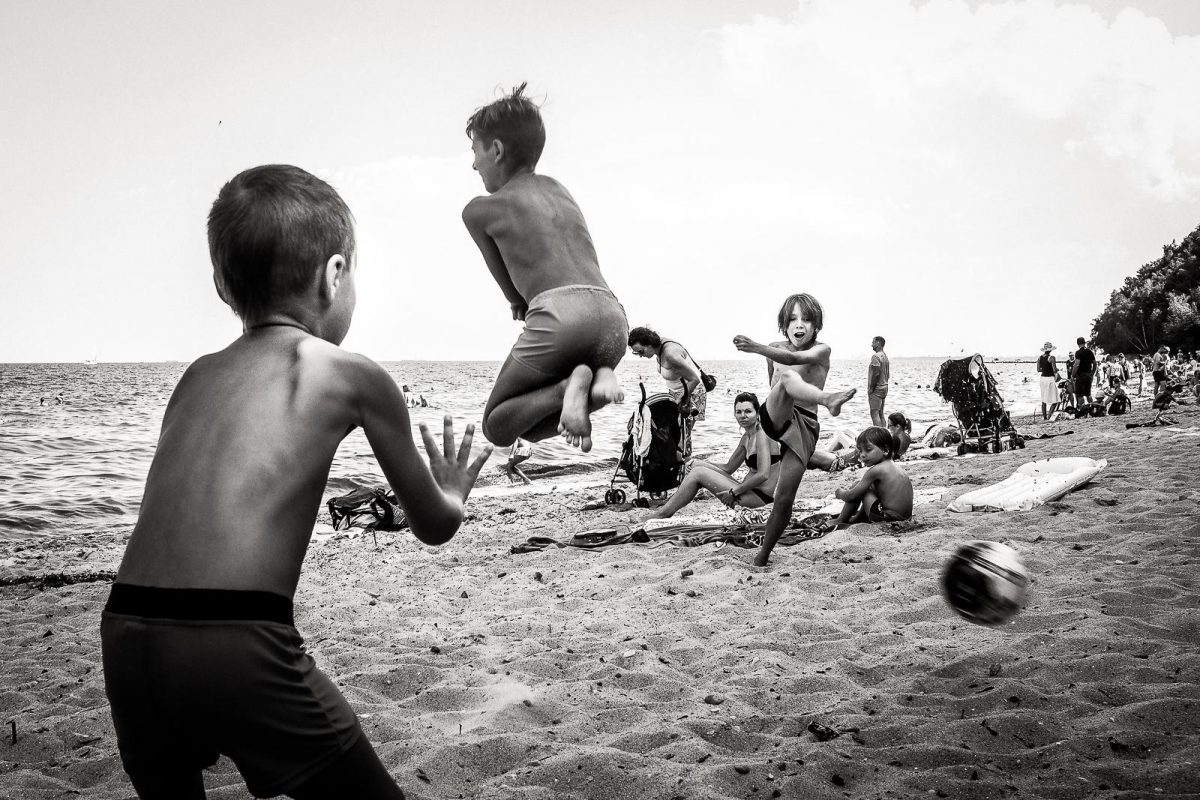
Andrzej Witek (Spain) – Website / TiRF
“When we think about “why family photography is so important” most of us will say it’s because it captures our memories which we can cherish in the future. It’s an important part of our visual legacy we pass to our kids or even our grandchildren.
One of the very important aspects, often missed by the parents but even by the photographers itself, is the impact of the family photography on our kids and their emotional development. Especially on their confidence in their own worth and abilities.
There are studies called “Phototherapy in Mental Health” by the American psychologist David Krauss. In his work Krauss writes “I think it is really important to show a family as a family unit. It is so helpful for children to see themselves as a valued and important part of that family unit. A photographer’s job is to create and make the image look like safe holding space for kids where they are safe and protected. Kids get it on a really simple level.”
Printing and decorating our home with family photographs sends the message to our kids that our family as a whole and those in it are important to one another. We as parents are showing to our kids that we are prond with them the way they are and that we cherish the memories and experiences we have together.
Those printed “memories” tell “We love you and care about you. You are important.” – Andrzej
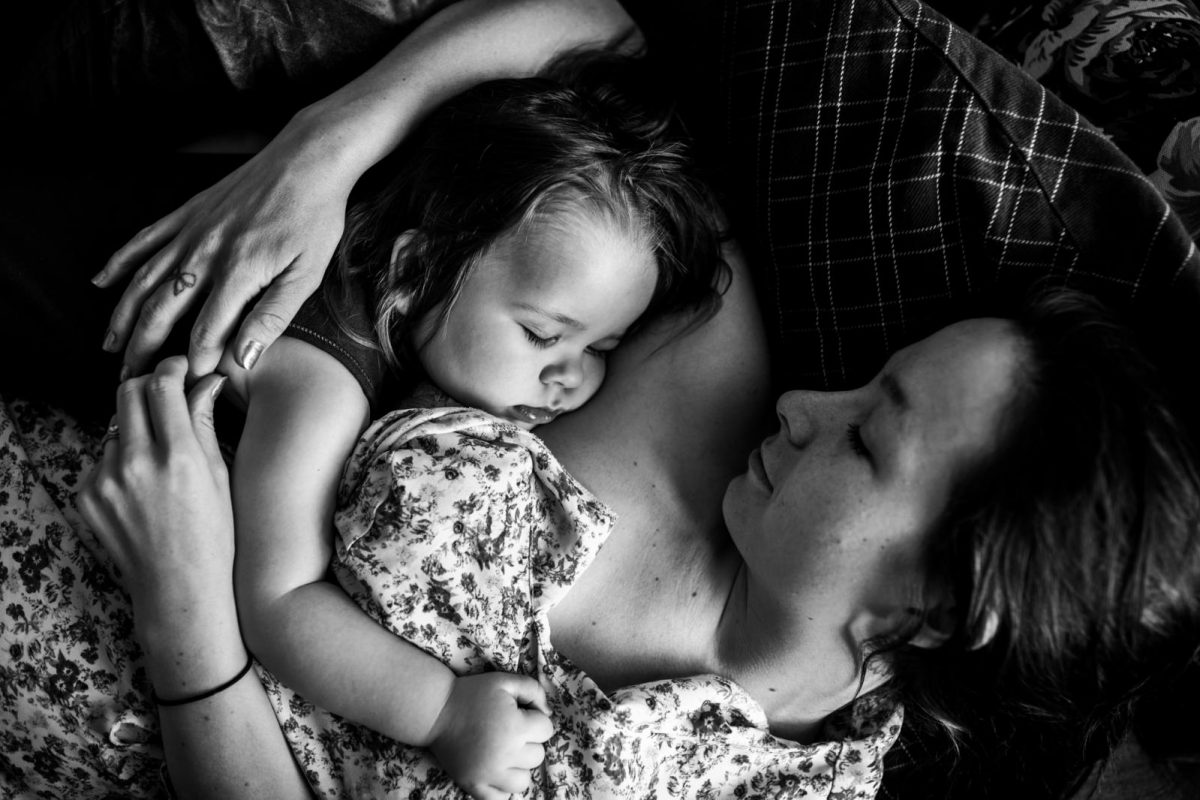
Hollie and Patrick Mateer (UK) – Website / TiRF
“Day to day, we capture natural and unscripted moments of our family. These moments won’t always be ‘beautiful’ to everyone. Family life can be a little chaotic. Meal times can be messy. Some days can be mundane or ordinary – some days we won’t find the time to dress in our Sunday best.
So though our life is not full of traditional ‘family photo’ moments, all these moments are still beautiful to us. The reportage images we take of our family hold a poignancy that will last a lifetime. More importantly, they will hold real meaning for our children as they grow older. The images tell stories.
We carry this ethos over to how we photograph professionally. People expect realism from our images and this approach is authentic to us. We think – or at least hope – this is why our images stand out. We’re not just taking pictures, we’re not just taking snap shots. We’re documenting real life.” – Hollie and Patrick
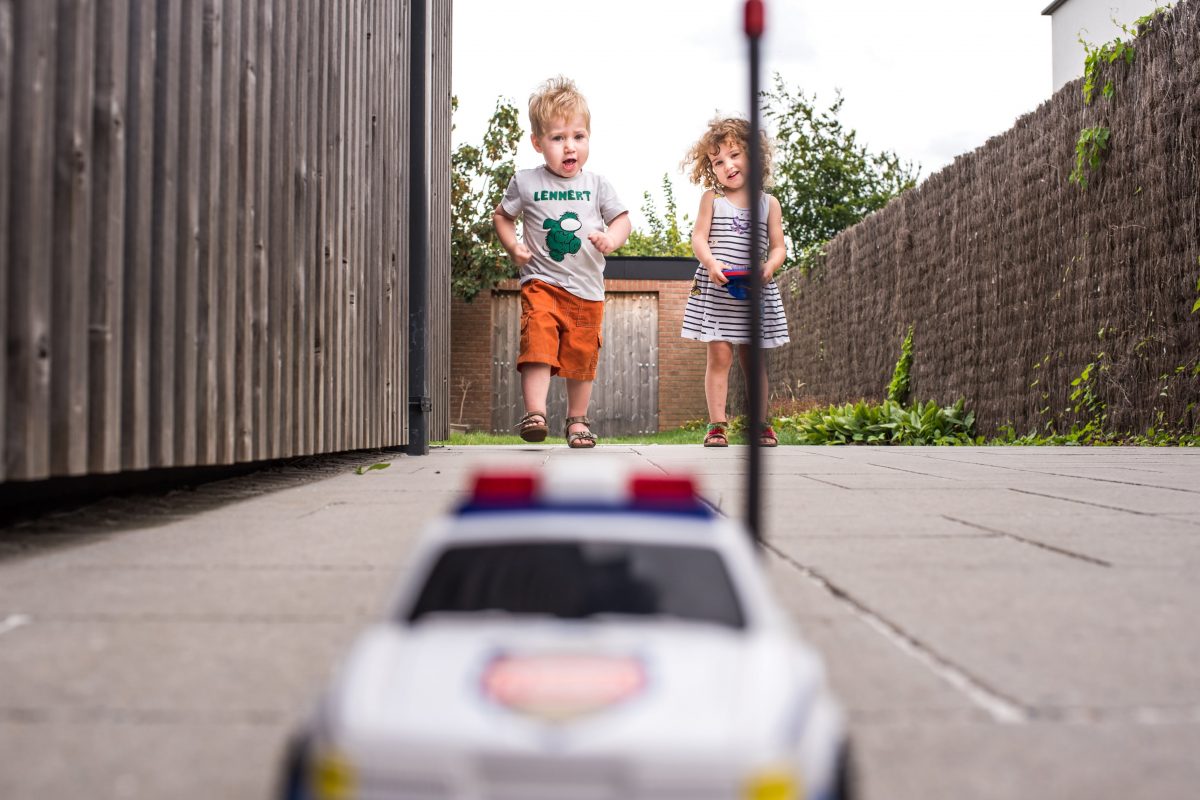
Kelly Haentjens (Belgium) – Website / TiRF
“Every year I make a family yearbook for both of my kids. These books are not a collection of our most pretty, perfectly posed family photos, it contains snapshots of moments I want (them) to remember. Moments where they made us laugh so hard when they made a complete mess of themselves while eating ice cream. Proof that my two-year-old thinks he’s good at playing hide and seek by covering his face up with a bib. Friday nights when we make popcorn together and watch a Disney movie. That one time my four-year-old was allowed to paint the nails of her grandfather.
I cherish these authentic images because I know that in 10, 20, 30 years from now, they will take me right back to those exact moments. Being able to do the same for other families, visualizing their unique memories, makes me feel privileged and just… happy!” – Kelly
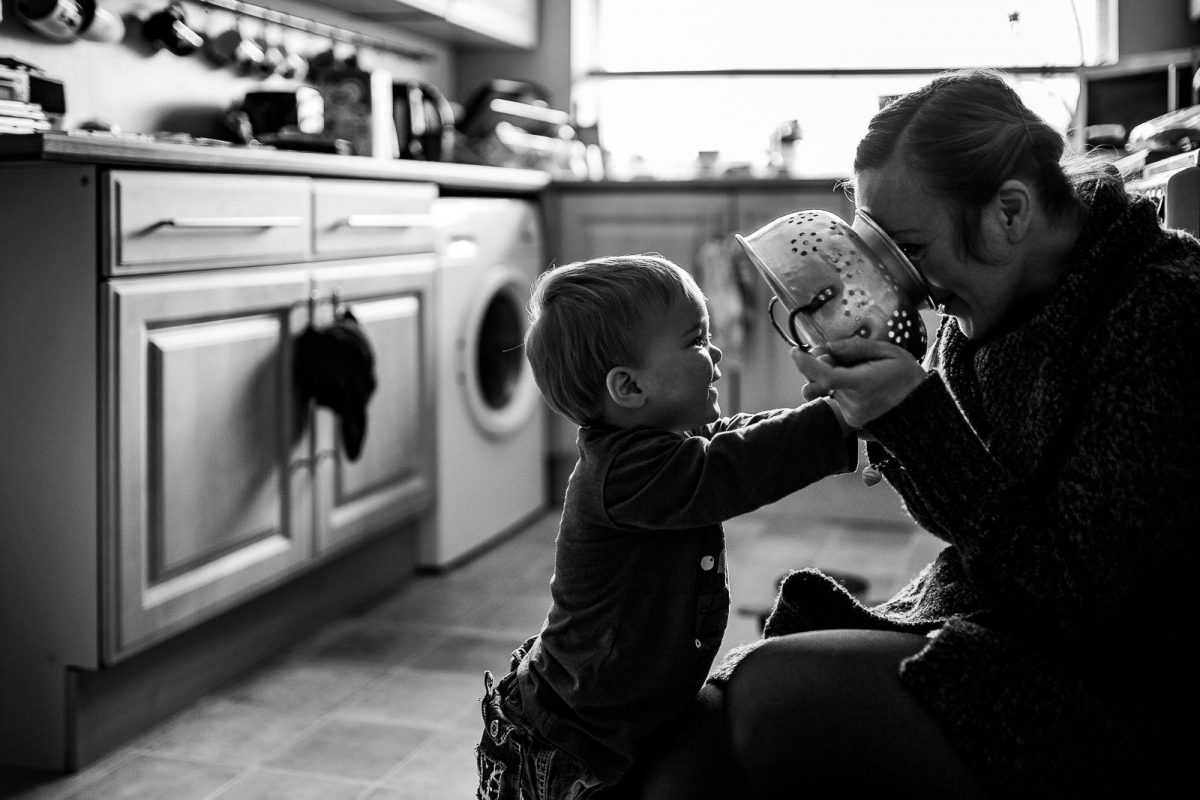
James White (UK) – Website / TiRF
“As some families get bigger and the kids get older, having a documentation of family life is so important. If not for now, but the photos you take will be for future generations. How often do we look back at those family photos and think about that period of time? Things change in life, be it family members may pass, or new family members arrive.
Life events should be documented even if it’s a quick mobile snap, of your kids 1st birthday, 1st bike ride or 1st day at school having memories of key moments in life will always be great to look back on. It’s about capturing the different relationships and personalities of real life without posing or directing. These kinds of photos will be cherished for many years to come.” – James
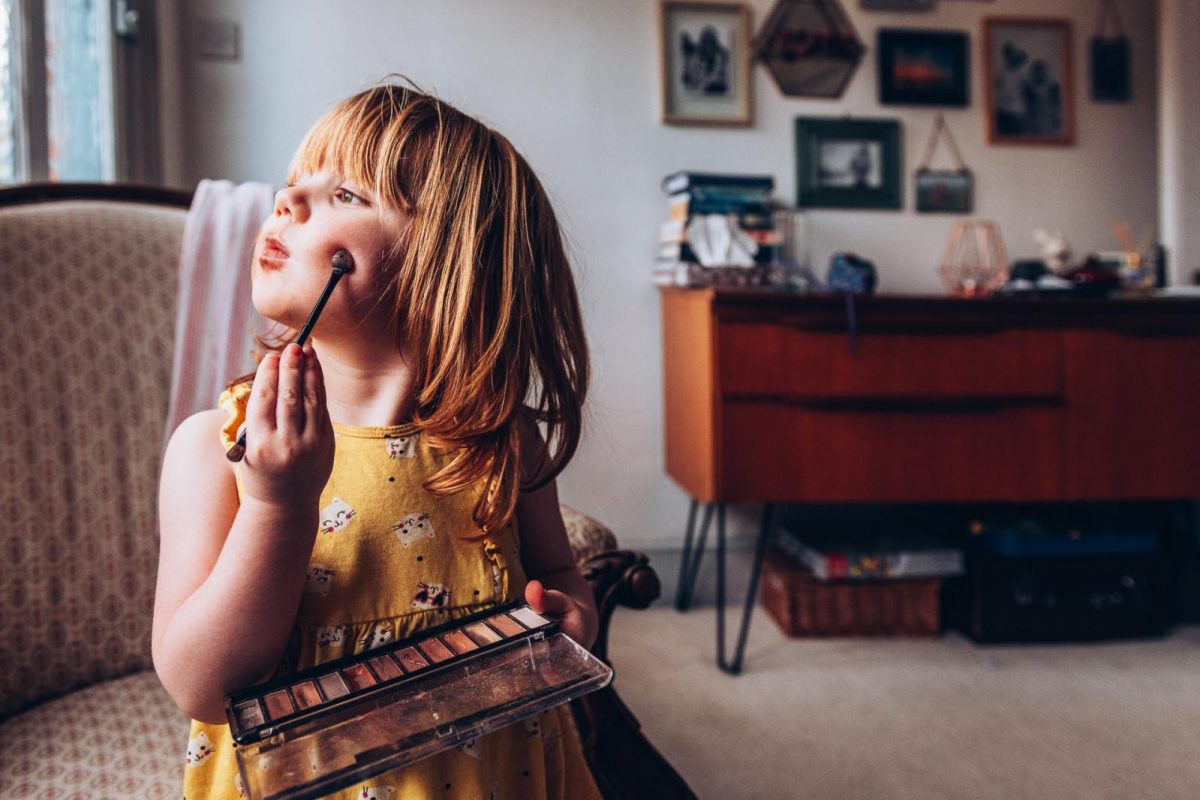
Erica Hawkins (UK) – Website / TiRF
“One of my favourite photos is an image of my mum and dad asleep on a small sofa, in a caravan in Bognor Regis. Their bodies perfectly mirror each other as they sleep while they are probably, forget that – definitely – a little drunk! I took the image before I found my feet as a photographer and before I knew how important documentary photography would become to me.
My mum passed away 5 years later and it was the image I wanted on my mantel piece, it’s real and captured a scene that was so normal and familiar to me. Every time I look at the photo it makes me smile and connect with her in a way that is different to the ones of her looking beautiful and smiling into the camera.
Documentary family photography is important because it tells your family’s story by capturing real and everyday moments. It frames those little moments that become so familiar that our brains can often stop remembering them. Life moves quickly and change happens so fast, what we take for granted today, can be what we cherish in the future. Documentary family photography is a way to capture these moments.” – Erica
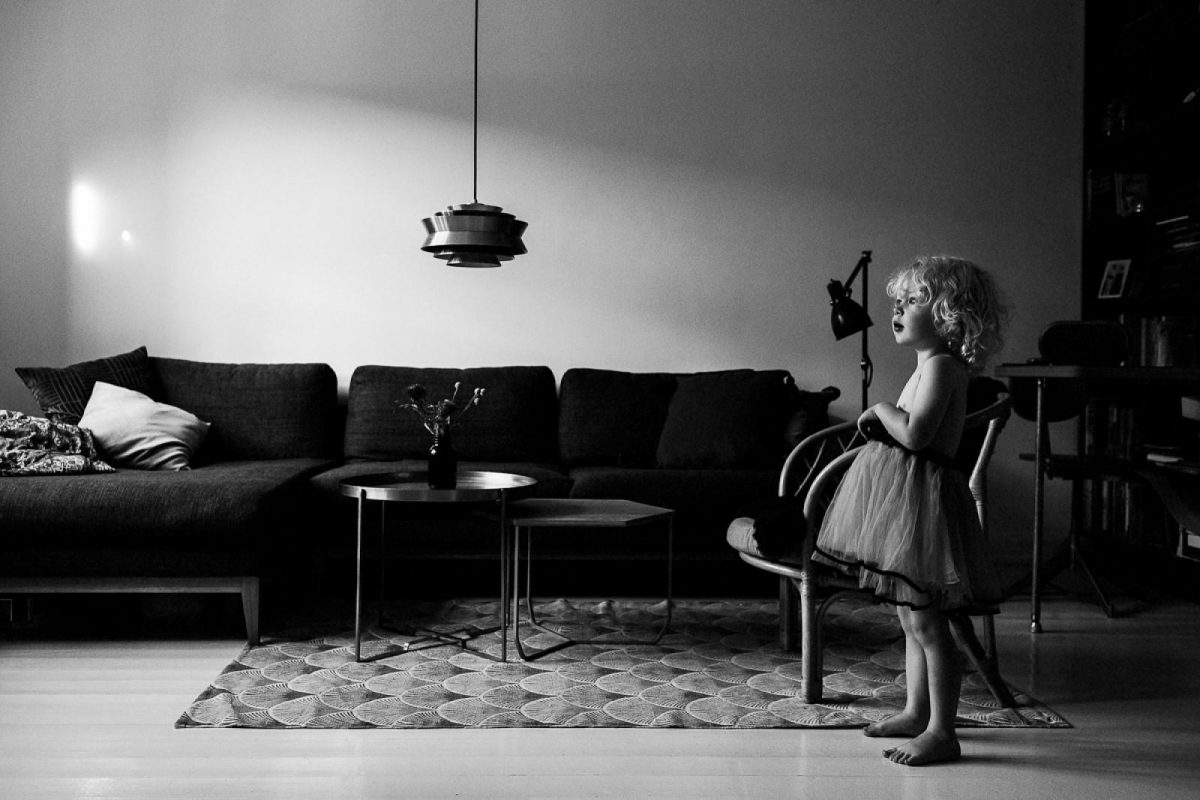
Jess Lycoops (Denmark) – Website / TiRF
“Why documentary family photography is important:
All personality types get seen and room to shine. The “loud” kid is allowed to fill the space, not shushed; while the silent one is not obliged to act but get seen in the quiet moments. In a documentary family reportage, we are able to truly portray all family members as they are, with each their own small story within the big family story.
Photography becomes a pleasant stress-free experience, also for those who struggle to get their kids out of the door in time, well dressed up and all in good smiling mood.
Not everyone is big with words to tell their love for each other. But love shows in small everyday life gestures as well, and all kids should grow up with pictures that show them this love.” – Jess
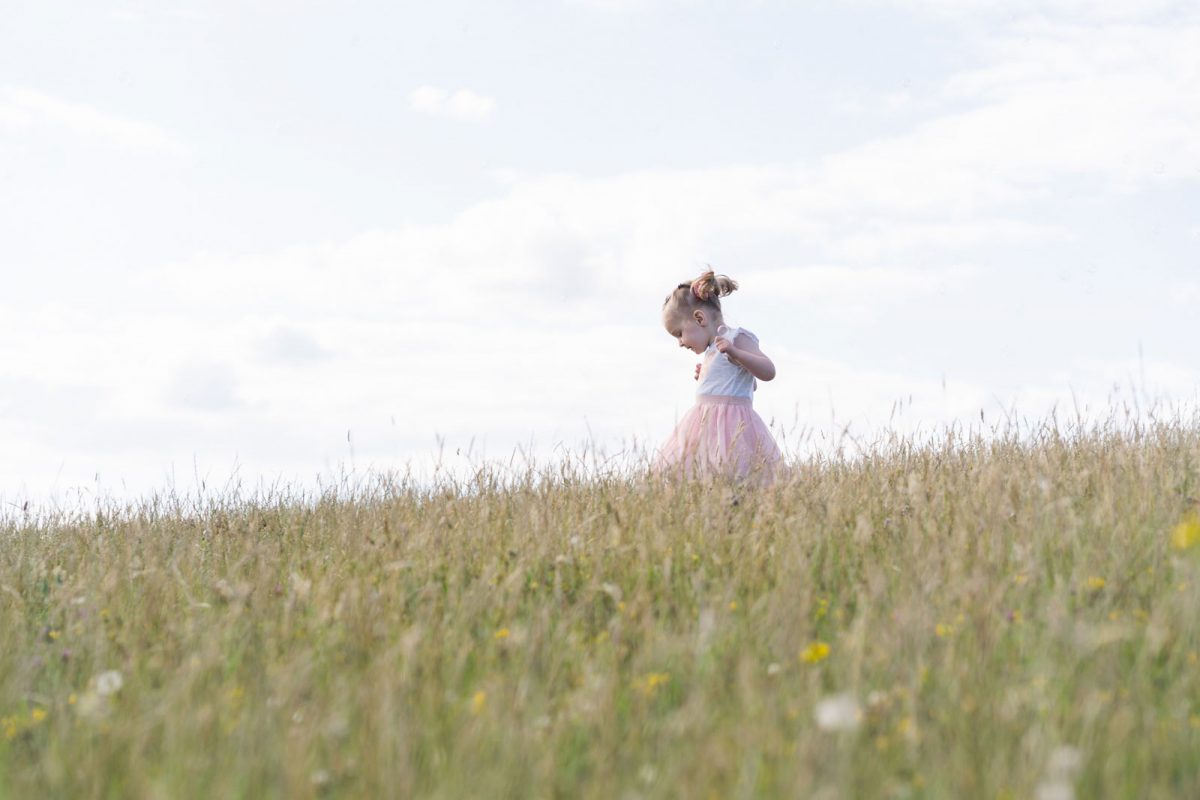
Pete Phelan (UK) – Website / TiRF
“Documentary family photography for me has become so important to me now not just as a photographer but as a father. I have very few photos of me from when I was young, especially as a baby or toddler. Things back then were obviously not digital as they are now and photos were not as accessible. My parents didn’t have the luxury of having a 12 or whatever mega-pixel camera in their pocket at all times. If they wanted photos of their children they’d usually get a disposable camera limited to 27 shots point, click and hope for the best! Unfortunately very few were keepers and very few have survived.
Recently myself and my wife were working on the photo album we have been compiling for my 2 and a half year old son Eli. In the album are previous moments from his first few days, to his first tooth, his first proper food, his first birthday all of the wonderful moment we love to see and relive as parents. I had a moment where I realised we probably have at least 1 photo from every day of his life and in his 2 and a half years on this planet he probably has had more photos taken of him than I have in 31 years!
A part of me was so happy that he’ll have those memories to look back on and maybe show his children one day. Then another part of me was sad that unfortunately all I could share about my childhood was the pictures I could paint with my words from my distant memory. Today we have the ability to document our children’s moments and give them beautiful snapshots of what life was like for them growing up so they not only tell their children but can show their children and those moments can be re-lived again and again.
Documentary family photography goes deeper than traditional portrait work (as great as that is!). Documentary photography shows the real moments, the real smiles, the real tears and the real embraces. I’m making it my mission this year as a photographer to help capture more of those moments that families can look back on over the next 10, 20, 30 years.
I photographed a family last weekend whose daughter is the same age as my son and I’ve had the privilege of helping document her 2 and a half years too. She’s the little girl pictured walking and playing in a beautiful local meadow. Some day she’ll look at these pictures of her growing up and I get the honour and pleasure of documenting that, how amazing is that!” – Pete
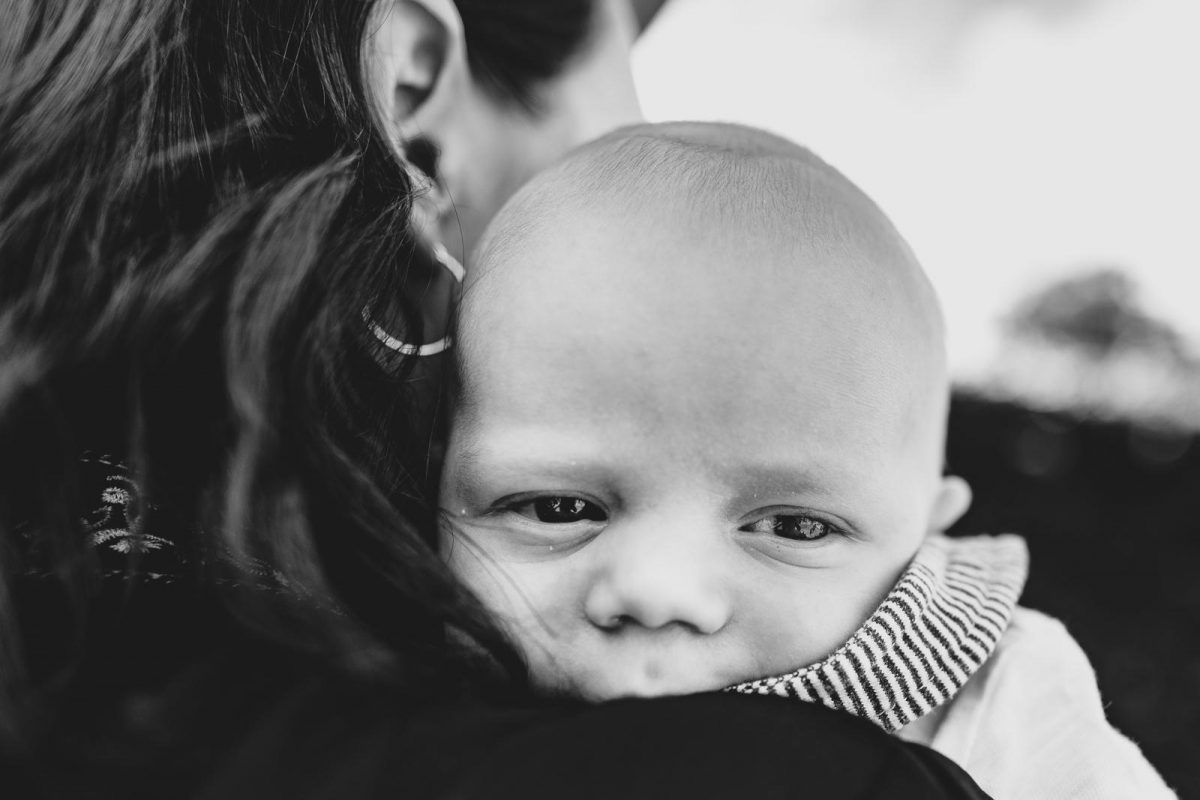
Heather Butterworth (UK) – Website / TiRF
“The reason I do documentary family photography is because, every second, something beautiful may be happening that no-one sees, or everyone sees, or no-one remembers: honest moments that weren’t set up or staged, but just happened. Having my own family has made me see things in a new way, that I couldn’t possibly have seen before and I love the opportunity that this type of photography gives me.” – Heather
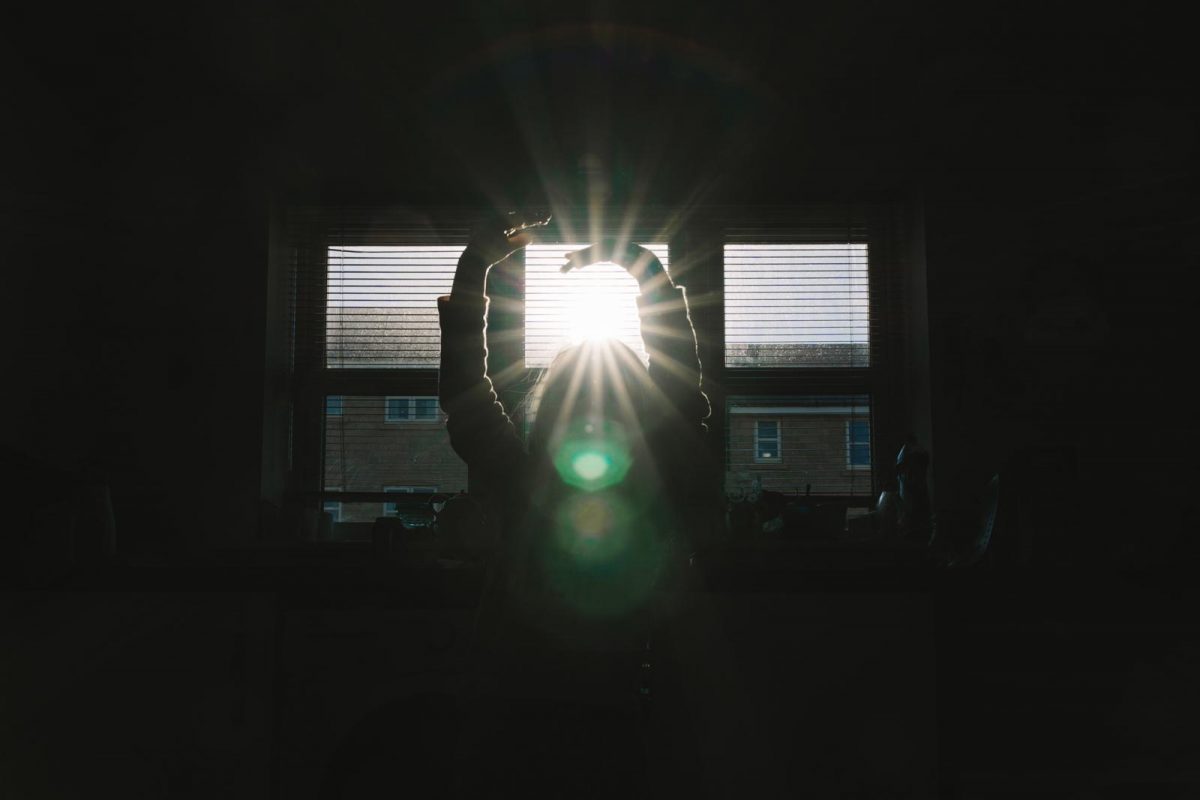
Anna Wood (UK) – Website / TiRF
“So many of the images we see in our daily lives are planned and pruned to perfection. We are shown imagery by the media, by advertisers and even by ourselves that show only the most immaculate version of our lives. But yet we all know deep down that life isn’t all perfect hair, pearly white teeth, tidy houses and Pinterest worthy decor – the human life and experience is so much more than that.
We have deep emotional connections with our families that are worthy of documenting. I think people need to be unafraid to show the raw truth of what family life is like, heck our children need to know and grow up believing that imperfection is not only okay, but it is necessary.
Documentary family photography allows for the imperfections to be shown and the truth to shine through. But it also is the opportunity for the photographer to show the story of a family as they see it – finding beauty in the mad chaos that we find in our every day lives. These are the things that we can easily miss whilst we are trying to be picture perfect – the way those little hands reach for yours, the way they laugh hysterically at their favourite book, the way they sit with their thumb in their mouth and stroke the corner of their rabbit’s ear whilst surrounded by the mess of a days playing.
I know when my children are grown I hope I can show them images of what their childhood was actually like, and not just photos of what I orchestrated it to be like.” – Anna
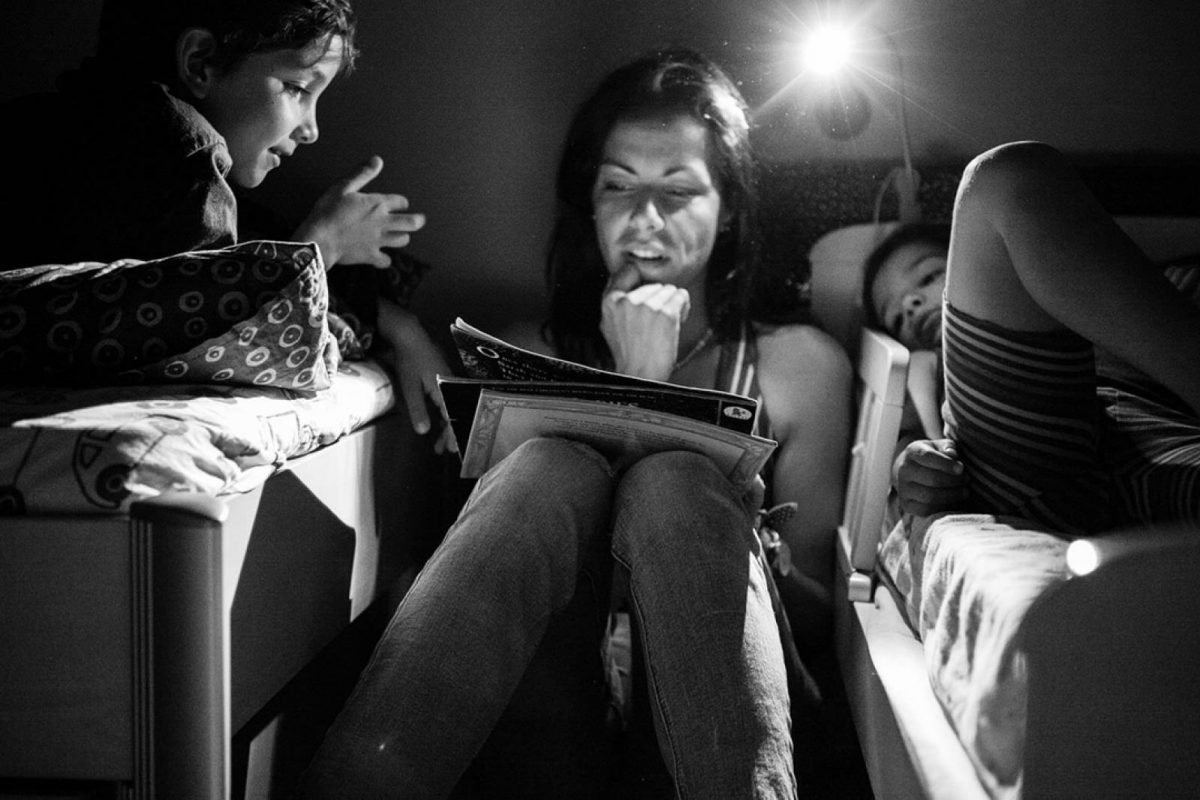
Antonina Mamzenko (UK) – Website / TiRF
“When I look at my own childhood photographs, I know it’s not the beautifully posed photos with perfect smiles that are the most precious to me. It’s the real ones – often imperfect and messy – that I treasure the most. The clothes we used to wear, the games we played, the books we read, what my room looked like – these are all the things I no longer remember and looking at old photos helps me piece together precious memories.
When I photograph a family, this is what I always have at the back of my mind – that I’m creating this treasure trove of memories for when the children grow up.” – Antonina
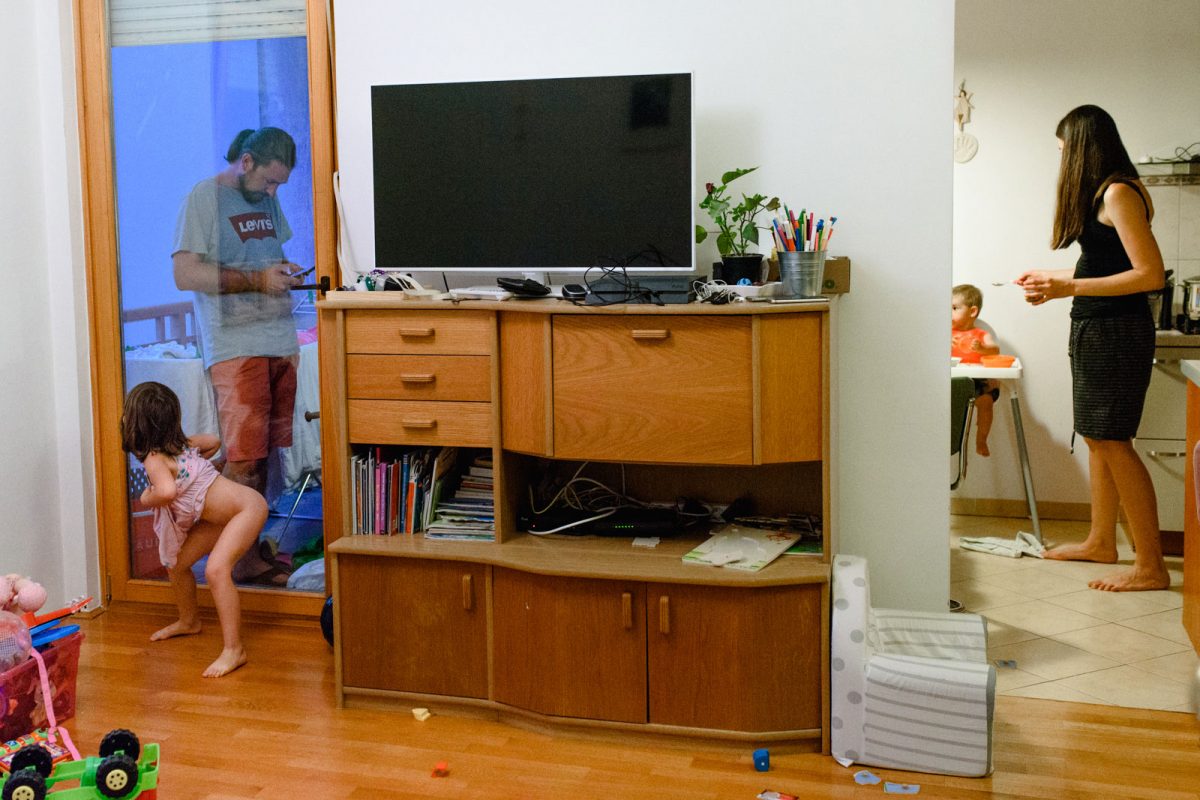
Ivana Aleric (Croatia) – Website / TiRF
“Our life is like an ongoing curved line going up and down. We are traveling through times of ease and happiness as well as through tough times. And in whichever period of time we encounter ourselves, we should embrace it without hesitation because – it will pass, it will change.
Same way, documentary family photography is about praising real life and accepting equally the good and the bad. Are we laughing and dancing with our kids or are we exhausted from their crying and constant neediness. We are not running away from anything, we want to show it all.
That is what I like the most in it, the fact that it is representing the essence of life, in its own unique way.
As a documentary family photographer, I’m enjoying the mindfulness of the process, being present while photographing, being in the moment, telling the story about NOW. I’m trying to get deeper into family’s relations, trying to show the character of each individual as well as their oneness.
I believe this raw approach is especially helpful for the family we are photographing as it can reveal them some new reality, a reality they cannot be aware of nor cannot see it from inside. One client once told me the most valuable feedback, realizing her everyday is far from boring like she thought. That can be a turning point for our personal growth.” – Ivana
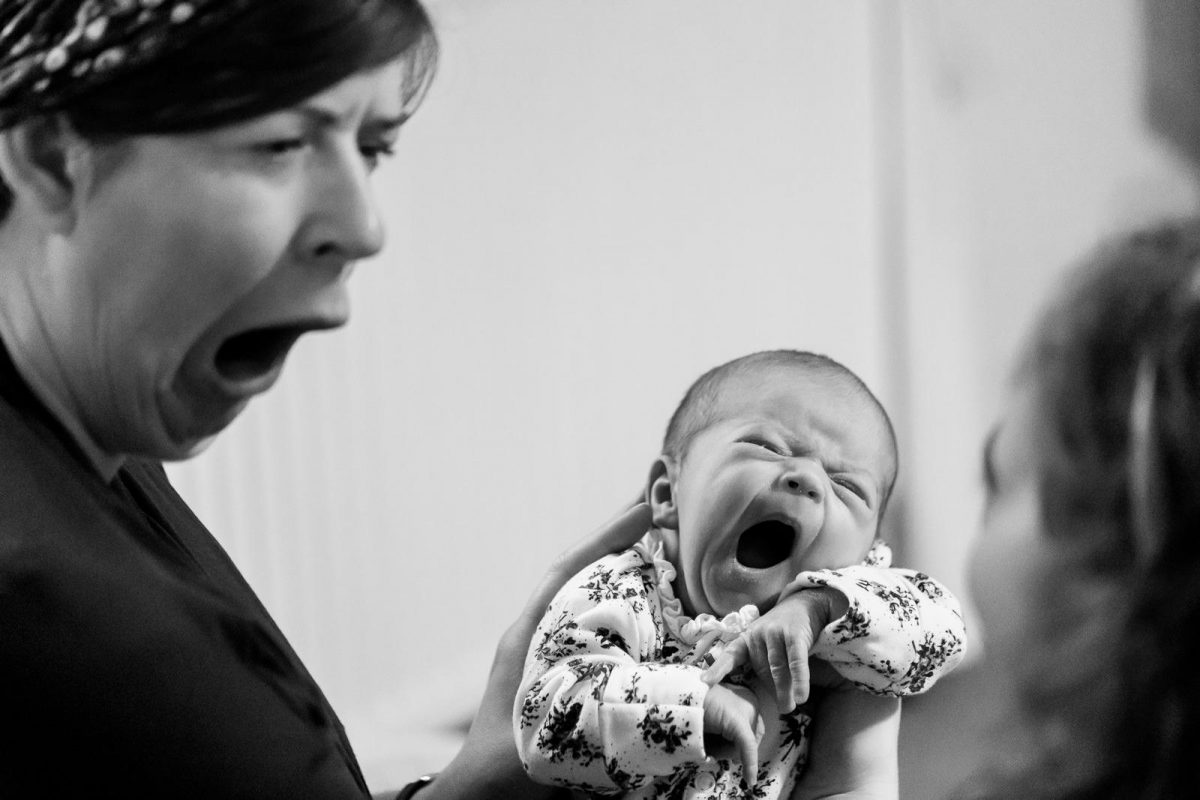
Jo Quint (UK) – Website / TiRF
“Did you ever have that awkward, I-don’t-know-how-to-stand-and-what-do-I-do-with-my-hands? experience of ‘getting the family photos done’ in a random studio somewhere on the local high street? I did – it was a thing back in the 80’s. Anyone who was anyone got their portraits ‘done’ at the same studio. It was a fancy place and I knew it was A Big Deal – we had our outfits sorted weeks in advance and our hair done especially for the occasion. Thing is, whenever I look at the photos I remember feeling out of place, awkward, ungainly, and self-conscious of my wonky teeth. And our photos were just the same as every other family – apart from the outfits and hairdos.
For me, the best family photos in our boxes of dusty family albums are the candid shots where we’ve been caught off guard, building sandcastles, jumping waves, whizzing by on roller boots, hanging upside down on the climbing frame, ice-cream remnants round our chops, photos rich with clues and evidence of who we were and the childhood we enjoyed. Photos that differentiated and defined us.
Family photos shouldn’t be about how you look – they should be about how they make you feel. They should be honest, candid, and full of life and personality. They should tell the story of your characters and relationships, they should capture the subtle looks and fleeting gestures between you that would so often go unnoticed by others, but which you know and instantly recognise as telling your unique family story.
Documentary family photography is the key to capturing these honest family experiences that will be enjoyed now and cherished by generations to come.” – Jo
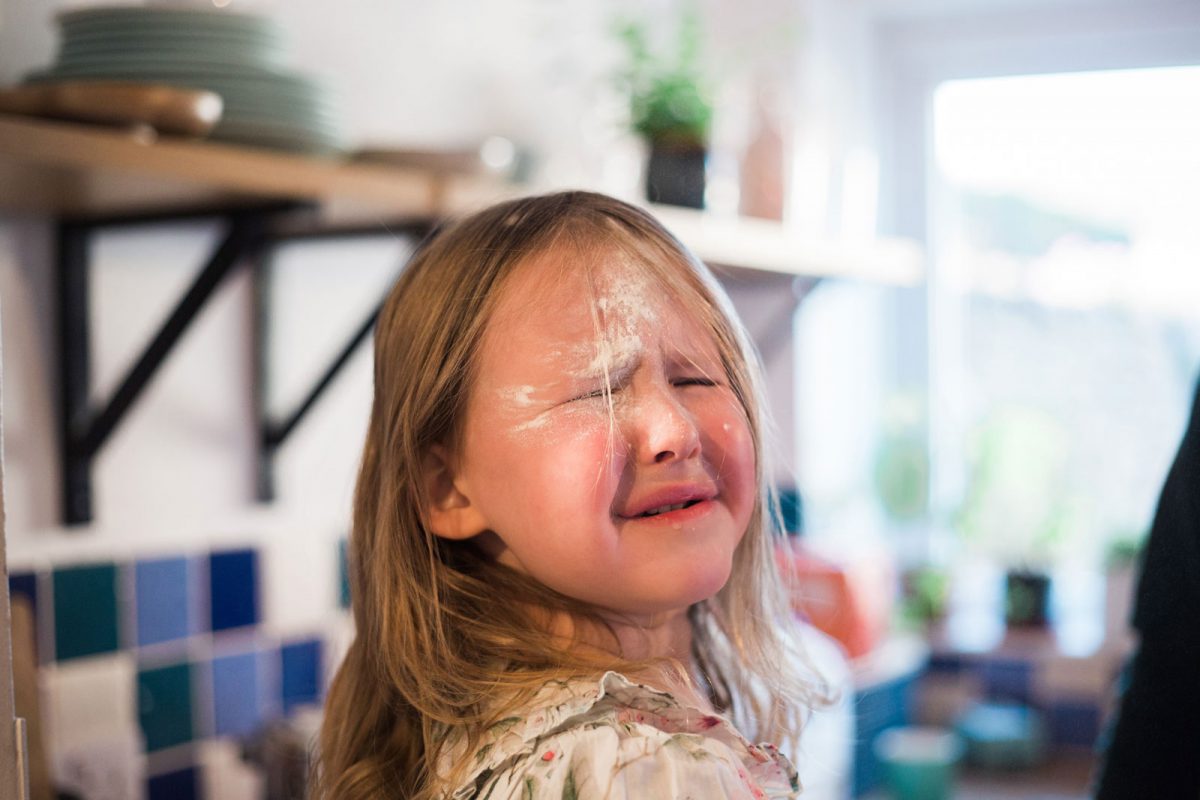
Lucy Napier (UK) – Website / TiRF
“To me it’s just so important to capture moments. As a mum I’m not interested in my kids “school photo smiles” I’m looking for the raw unscripted family shenanigans. I want to remember the naughty grin plastered across my four year olds face as he jumps from the sofa to the kitchen table in a game of ‘floor is lava,’ or the quiet moment between father and son when they think there’s nobody looking. I’m much more interested in the sulky bottom lip and the emotion of the full on, earth shattering scream than the forced by a well meaning parent, gummy grin with no joy behind the eyes!
It’s splashes at bath time, brushing your sisters teeth, throwing flour at your dad during pancake making that I’m there for. Family moments that are genuine and you can remember for a lifetime.” – Lucy
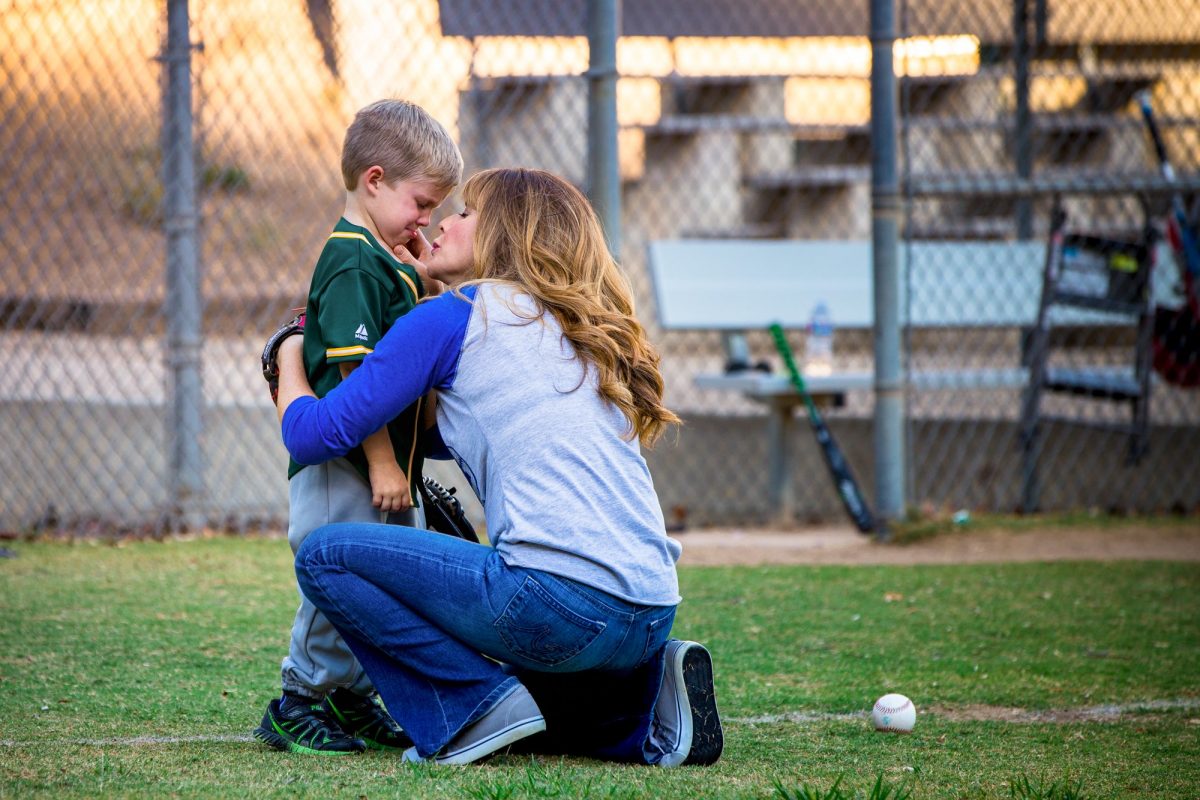
Loren Haar (United States) – Website / TiRF
“More and more parents are realizing that the images they love most from their lifestyle or styled family sessions are the candid ones, the in-between moments when their children were just being themselves, or when they were interacting with each other naturally. Parents don’t usually think about this beforehand, but when they come to a traditional photo session stressed and with forced happy emotion, that’s going to show through in their images, and more importantly, that’s what they are going to remember about our time together.
Documentary sessions are real life captured, so while there may be stress, there is also resolution and connection. As a documentary family photographer I have trained myself to watch for and capture those moments while the family just does their normal activities and the result is a gallery of images they find instantly nostalgic, meaningful, and true.
When I first started offering Documentary Family Sessions I asked a friend if she wanted to do a portfolio building session with her family. She went right to Google before I could explain further then came back with “Do I have to look like crap?” This made me laugh for a while, but it touches on something we will always contend with when photographing people: are we hired to create an alternate reality, showing an idealized and stylized and dramatized portrait of a family, or are we hired to reflect a family back to them in imagery that is honest and perceptive. I prefer the latter, and hope this style grows in popularity. You don’t have to look like crap, but you do have to be real.” – Loren
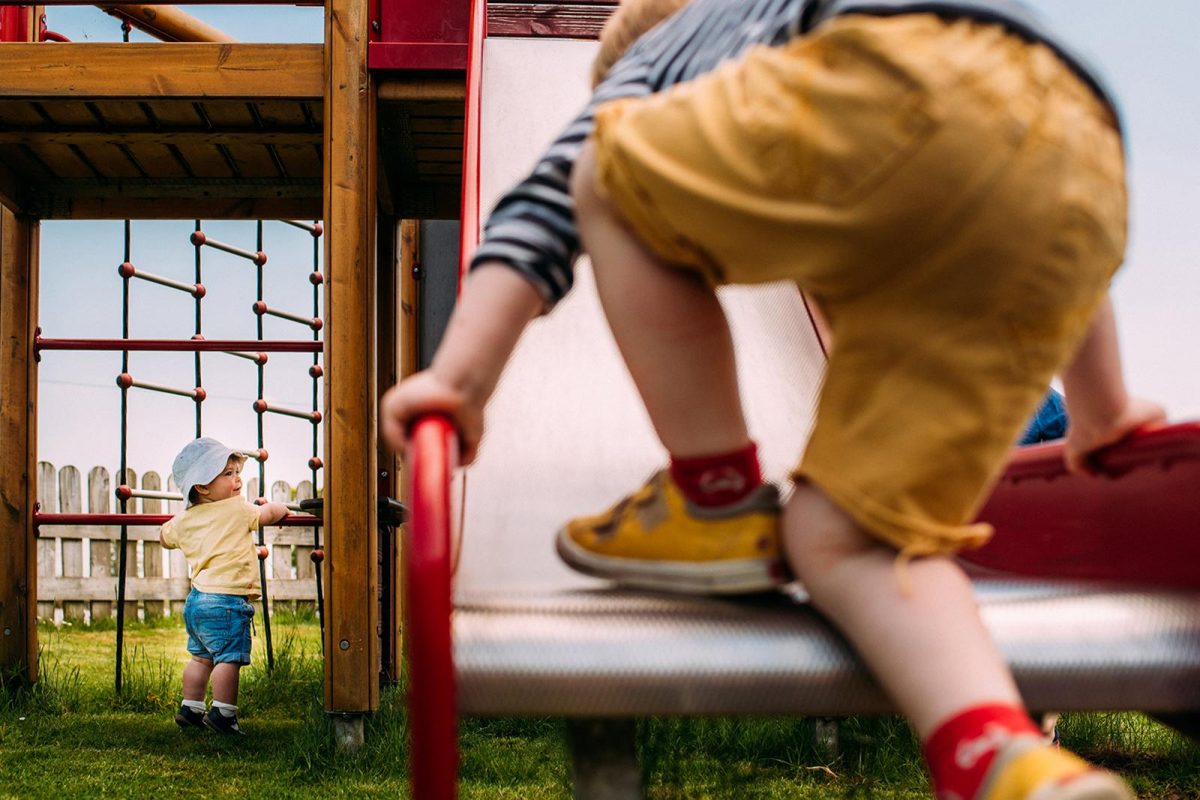
David Scholes (UK) – Website / TiRF
“‘As someone who spent around 8 years working in a family portrait studio before becoming a wedding photographer, I have seen so many styles and trends come and go and become dated.
This is why reportage family photography is so important. Because a moment in time doesn’t date (well you know what I mean). It isn’t a gimmick, or an idea the photographer had that they’d seen someone else do, it’s a real moment that happened between a child and their parent, or two siblings, or with a grand parent. And just like with wedding photography when captured well it will become a priceless image that will trigger a memory every time you see it.” – David
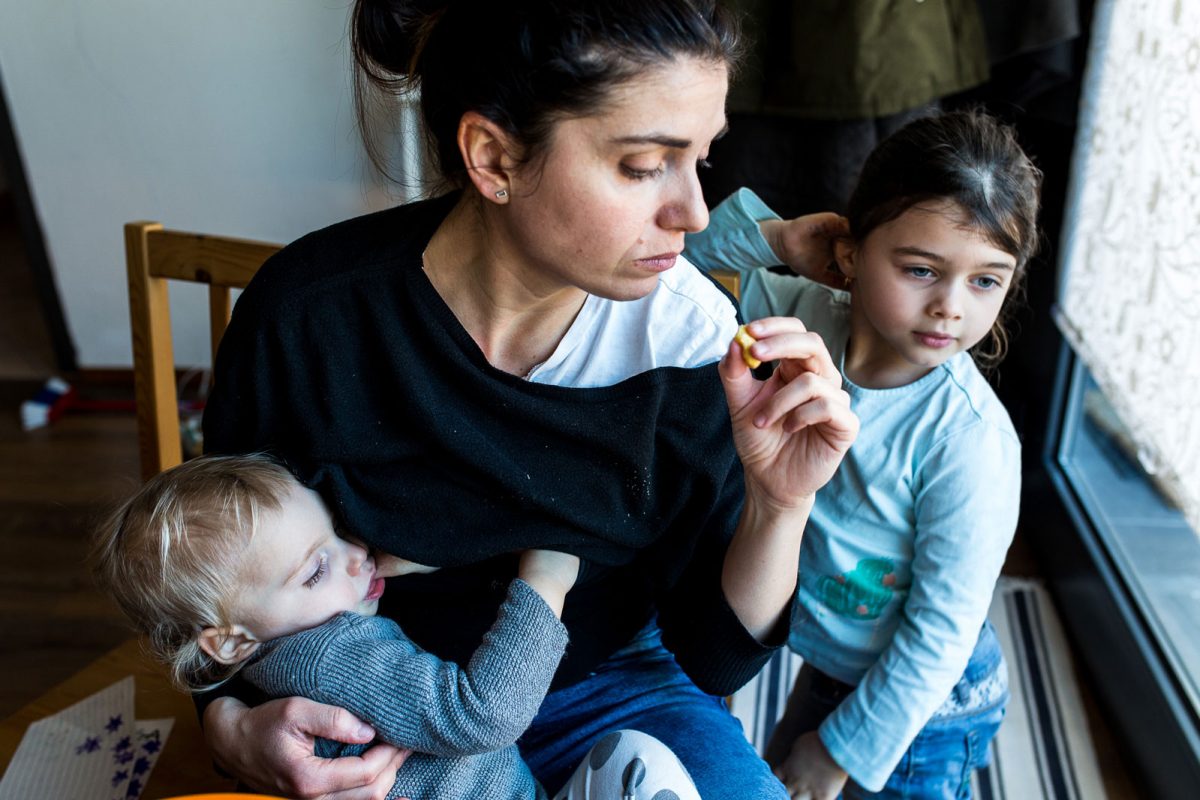
Lavinia Nitu (Italy) – Website / TiRF
“Documentary Family Photography – it opens up a window to let the light in so that you and others can see.
We used to live in small communities, villages, relying on the wrinklers to tell stories, to pass on memories. And it might feel like this was happening thousands of years ago but less than 100 years has passed since then. The need to have our stories preserved is still there, embedded in our DNA, we just don’t acknowledge it as such. We no longer meet in the evenings to tell the stories of our ancestors because most families live by themselves and in the evening they gather around the TV in search of a good story.
But still we feel the need to record our life on camera, we feel the need to save some parts of us so that our kids can remember us.
And this is why I think Documentary Photography is light. The documentary photographer opens up this window on people’s life that allows them to see themselves, to save a part of their memories for the generation to come. So that they don’t forget what’s important in life.
The moment you let the light of photography shine on feeling, on emotion, on routine, you make your everyday life special, worth remembering.
Documentary Family Photographers won’t save the world, but they help preserve the past so that none of us can forget it.” – Lavinia
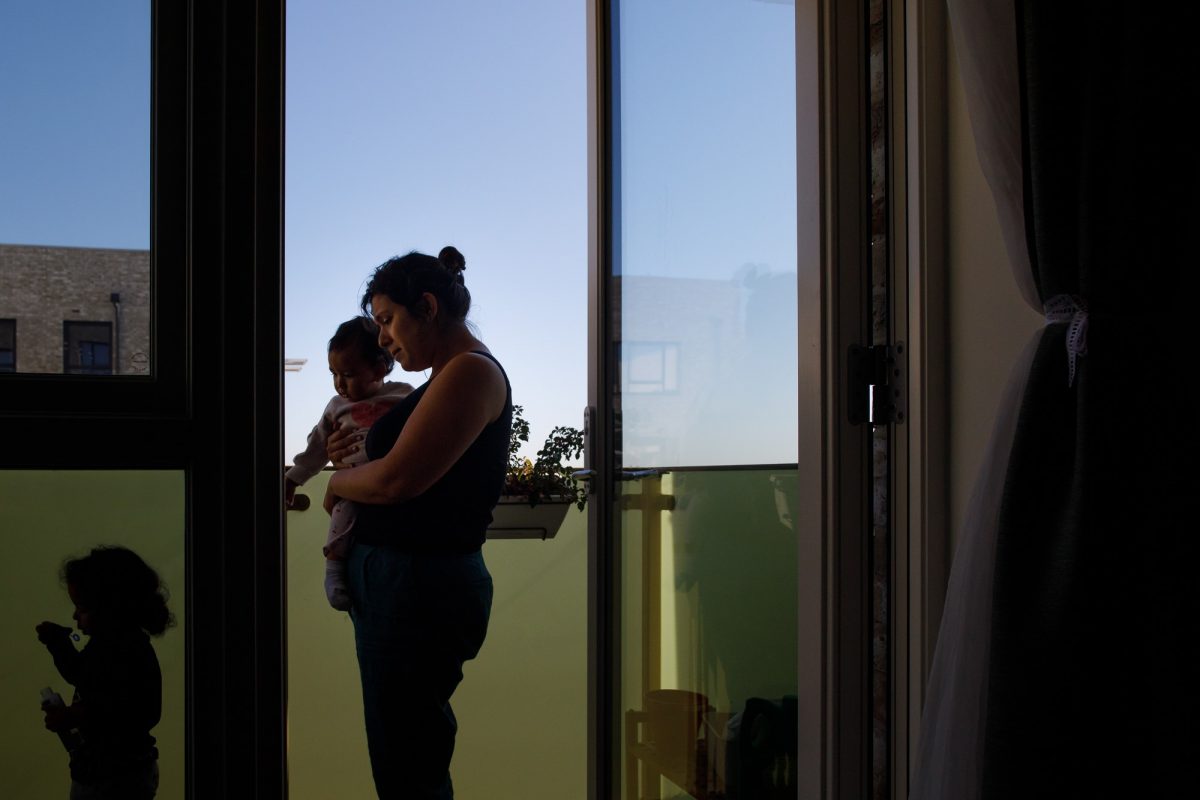
Emma Collins (UK / family photographer London) – Website / TiRF
“The benefit of hindsight is so powerful – I often find myself reflecting on my years of motherhood, the phases and habits, the joys and exhaustion, the laughs and tears … but time is cruel, rituals have been and gone, in 18 months my oldest will leave home, and it breaks my heart that I don’t have more of a record of all these seemingly insignificant moments that add up to our whole life.
It is through the shortcomings of my own visual family history, that it has become so blindingly clear which are the really important photos that I want to take for other people. Photos that elevate, honour and normalise the rhythm and struggles of everyday family life. The pictures that you want to come back to time and again, pictures that show your children how you loved them and what life felt like, pictures that give you a tangible link to the past. This is the beauty of family documentary photography.” – Emma
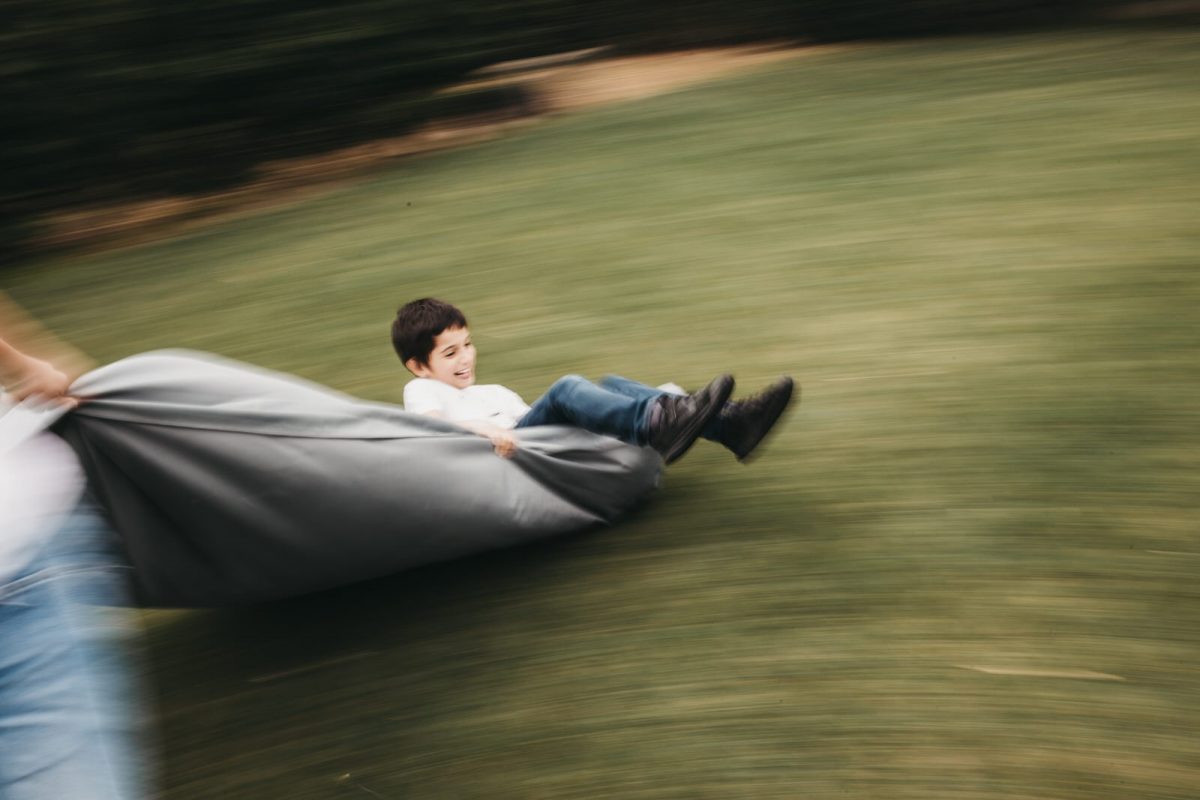
Marisa Martins (Portugal) – Website / TiRF
“Every day there are little moments that define us as a family, small things, small gestures that have a whole lot of meaning, and without us even realizing, day by day get lost in our daily routine.
These are precisely the routines I want to capture, so they work as a magnet that will pull us back to memories, and it means that any photograph is a glimpse into a real moment that aims to capture the family’s true essence: their routine, meals, outings, car rides, grocery shopping, laundry, the kids’ activities… every single expression, with all the mood swings and dynamics that are so characteristic of real life.
I want to show a different perspective of daily life, in an authentic and emotional way, and how the family story starts at home, with their unique beauty, in an honest way which is sometimes difficult to see, and that´s why we, the documentary photographers, are highly trained to capture that “almost impossible” captures.
It’s the unforseen photos, the unpredictability that makes my heart explode whenever I find what I’m hoping for. It’s like digging for gold that lasts forever.” – Marisa
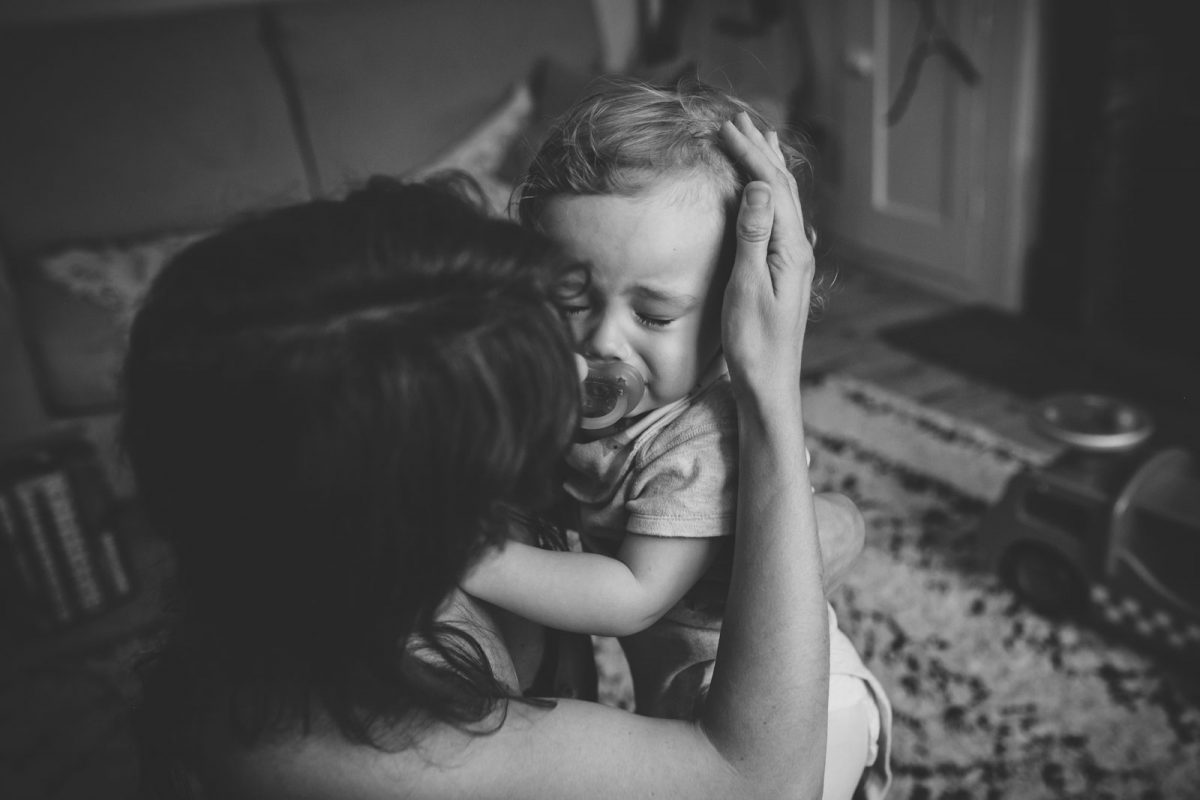
Victoria Mbewe (UK) – Website / TiRF
“Documentary family photography feeds my soul. Now more than ever. I enjoyed it before having children of my own, but now it’s taken on a whole different meaning and enjoyment for me. The opportunity we have to capture our most precious fleeting moments is priceless. I have a 19-month-old son, and he’s at that point where his personality is developing rapidly and shining through. He is cheeky, hilarious, relentless, stubborn, the list goes on. I find so much joy in the bits that make him, him.
And then I panic. I think back to my daughter, almost 6 now, and I can’t remember her special little things she did at that age. I can see her, but I can’t remember. I know I’m not a bad mother. I know I piled attention on her, played with her, laughed and cried with her. It’s just my memory has never been great.
My sister and her family lived with us for 3 years when I was about 16, my nephew was born within that time, but I don’t really remember it. When my memory fails I am so thankful for my camera. I know we have thousands upon thousands of pictures of my daughter from birth until now, a large majority in a documentary style, so I can use these to aid my memory. Here I can see her hand shoved down my top for comfort, here I can see my husband running up and down the kitchen, our daily method to get her to go to sleep, here I can see her first real smile and I now remember that day in her moses basket, I’ve kept that outfit.
Having snapshots and portraits are important too, but oh getting those little details mean everything. My children are my world, and as hard as it is to accept, we don’t own our children. We nurture, we teach, we guide, and like all animals they will eventually leave the parental cage I would rather keep locked tight. We will gasp as they venture to adulthood, feeling like we’ve lost a limb. But we will own our memories. And we will laugh, and smile, and feel grateful for what we share together.
A picture of our child fighting like his life depended on it when getting his nappy changed, the way her little face contorted when she cried, the dribble traveling down his chin from teething, a comforting hug when they are hurt and depend on you, the joy on their face when they discover something new! Finding the beauty in the everyday is magical. Things that you wouldn’t usually take a picture of, or just wouldn’t have time to as you juggle the dinner, and answer questions whilst trying to stop your son from thinking he can fly!
I truly believe in capturing the real. The good and the bad, no one is perfect, and we should embrace that. Capture the belly laughs, capture the tantrums. Remember the mud, the glitter, the dens, the dinners, twirling, bath time, the ouchies, the bedtime stories. To have those memories that capture the true essence of your perfectly imperfect family will provide a lifetime of joy, and then some.” – Victoria
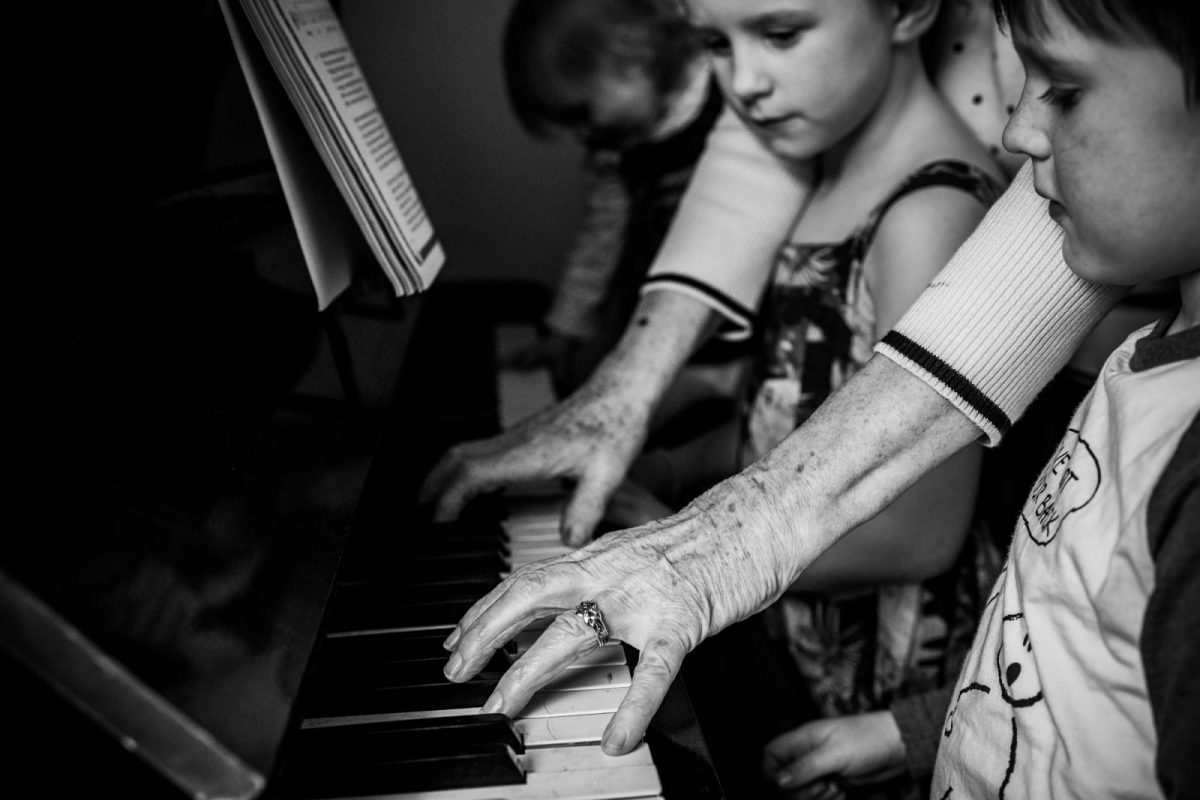
Johanna King (Ireland) – Website / TiRF
“Documentary family photography is so important to me, I often struggle to find big enough words to talk about it.
What I love most is that it creates a “time travel door” into the past. It doesn’t just show how it looked. It shows us how it felt. It shows personalities, emotions, connections, places and the imperfections of real life. The truth is that it will affect people differently. Images can make you emotional, nostalgic, excited, or joyful. What’s for sure is that a good documentary image of your family won’t leave you indifferent.
The power it can have on children years later is, to me, the driving force. They will get to see what their childhood really looked like and it will give them clues to understand themselves better. I also don’t underestimate how it affects parents, especially when they tell me it helped them appreciate their family and everyday life even more.” – Johanna
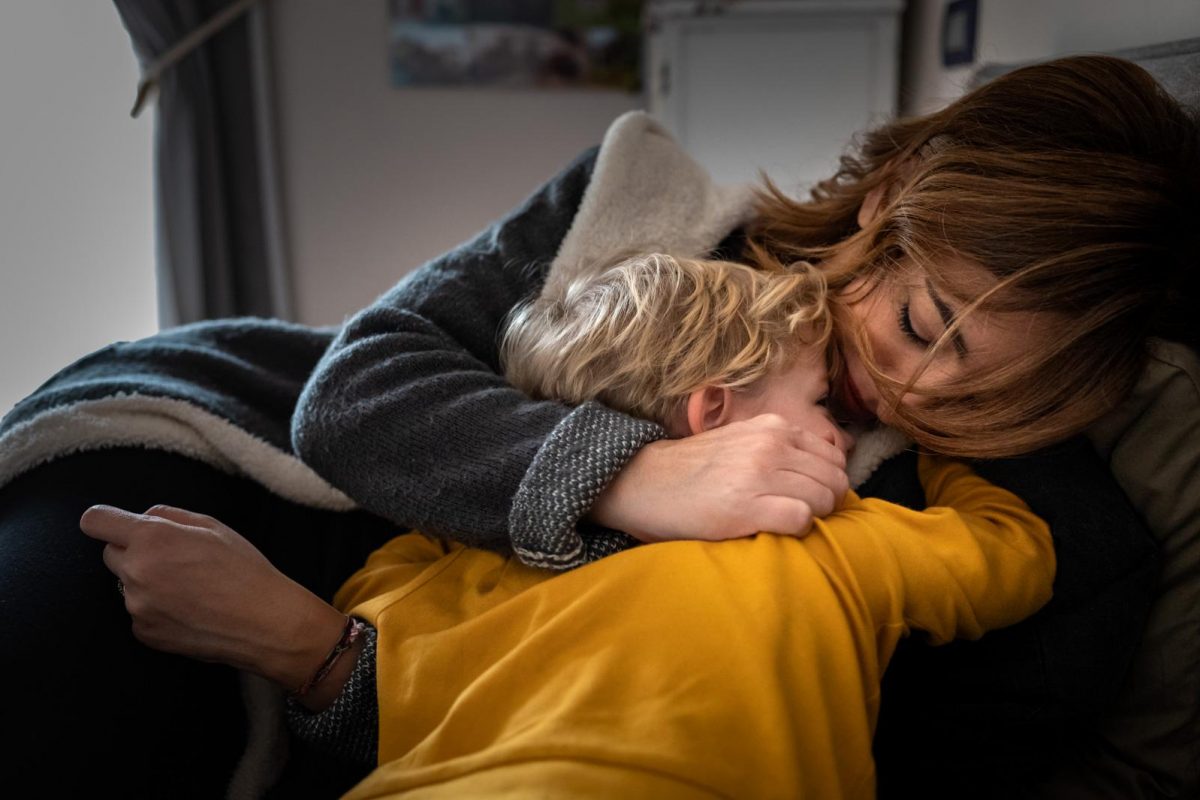
Sara Paolucci (Italy) – Website / TiRF
“What did you do on the 6th of July of the year you were 7 years old? Who did you meet? With whom have you played? How did you spend your day?
Of course you don’t know, you can’t remember, but wait: in my hands I am holding tight something for you. Something precious. It’s a photo album of a day, that day of your life when nothing special happened, except life. This photo album is about you and your family: from the moment you woke up till the moment you closed your eyes, too tired after an intense summer day of games.
Each photo is linked to the next one, each one will remember you something: forgotten toys, your old apartment, objects that speak of another time. And your parents: oh wow, they were so young. You will see clearly how much they have loved you (they still do, but you just couldn’t realize it at that time, right?), how much they have taken care of you from the simplest gesture or gaze they gave you, and your relationship with them.
It’s like reading a book, in photos, but the story is YOUR story. Open it, but I have to warn you: you will be hit by a big wave of emotions. Maybe you will cry, maybe you will long for those lost times, but thankfully, you have this book, and a slice of your childhood is preserved forever.
I wish, from the deepest corner of my heart, that I could say these words to each one of you. I wish I had the same opportunity, traveling back through time and space, and have a look at how my life was and better know myself. But I can’t. And it hurts.
Yes, I have pictures of my childhood: scattered portraits where I have been asked to smile and I felt uncomfortable in doing it, and I keep wondering about the girl behind that uncomfortable smile.
I can’t do anything for myself or for your past: but I can do this for your children: I can tell your story in photos and you will love it, but your children will be the ones who will treasure it like the most valuable gift.” – Sara
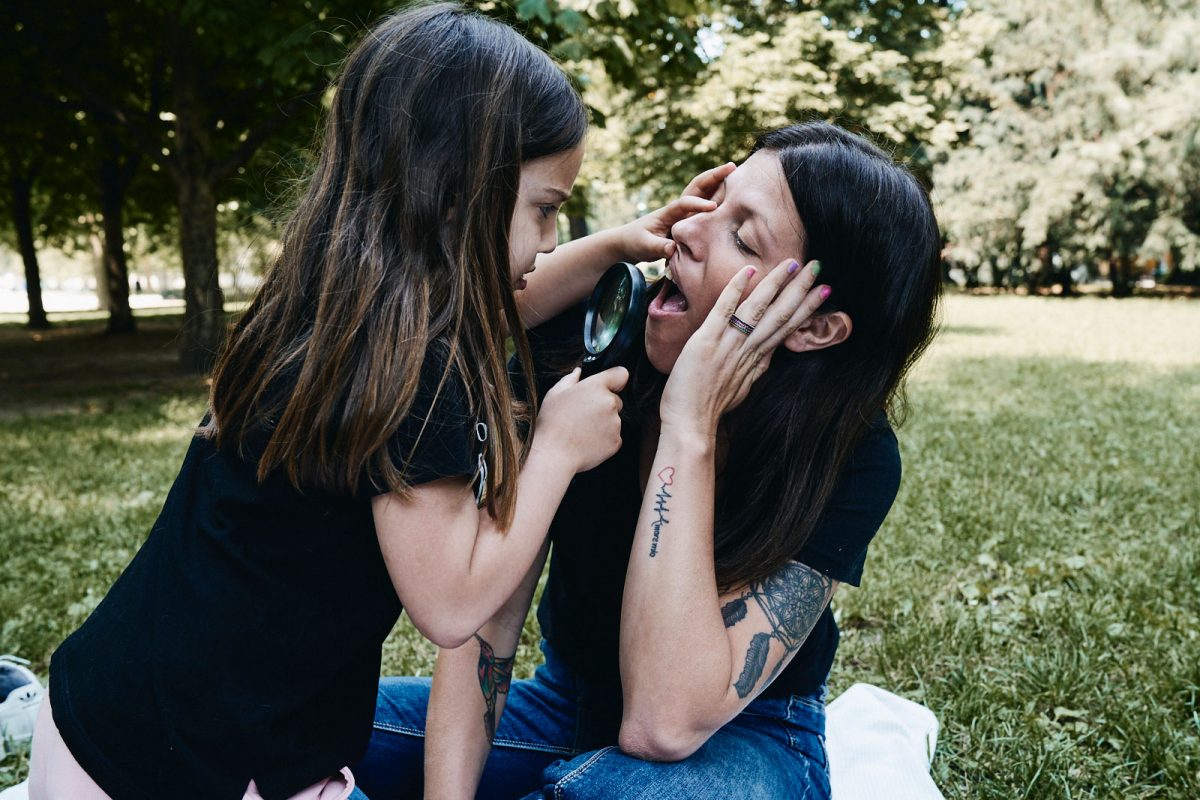
Francesca Angelini (Italy) – Website / TiRF
“Documentary photography is a complex language made up of moments, connection, intimacy, light, composition and voice of the photographer.
Many people often trivialize this photographic genre because it is reduced to a type of photographs that they can make by themselves. They don’t realize that the main focus point is that if they shoot they are not in the pictures they have of their family.
The reason why I choose to become a documentary photographer is about my inner non-tolerance of fiction and false appearances. Before I became a mother, I had no idea what a son (and then two) would mean. The society had made me believe that children were clean, fragrant, they were always smiling, that they slept and, last but not least, I discovered that everyone who had had children before me, they too, had lied to me.
Becoming a mother, I discovered that the house is a living organism that pulsates together with our emotions, our tensions, our postponements for tiredness, and in chaos it fills up with colors that draw our daily life … house is not a design catalog. This is the first of the reasons why I approached the family documentary.
I felt the need for comparison, I knew that I was not alone, and through the family reportage I realized I can help people, who think like me, to find beauty in what we have, without having to pretend to be always perfect, washed and perfumed, without a “beauty” filter.” – Francesca
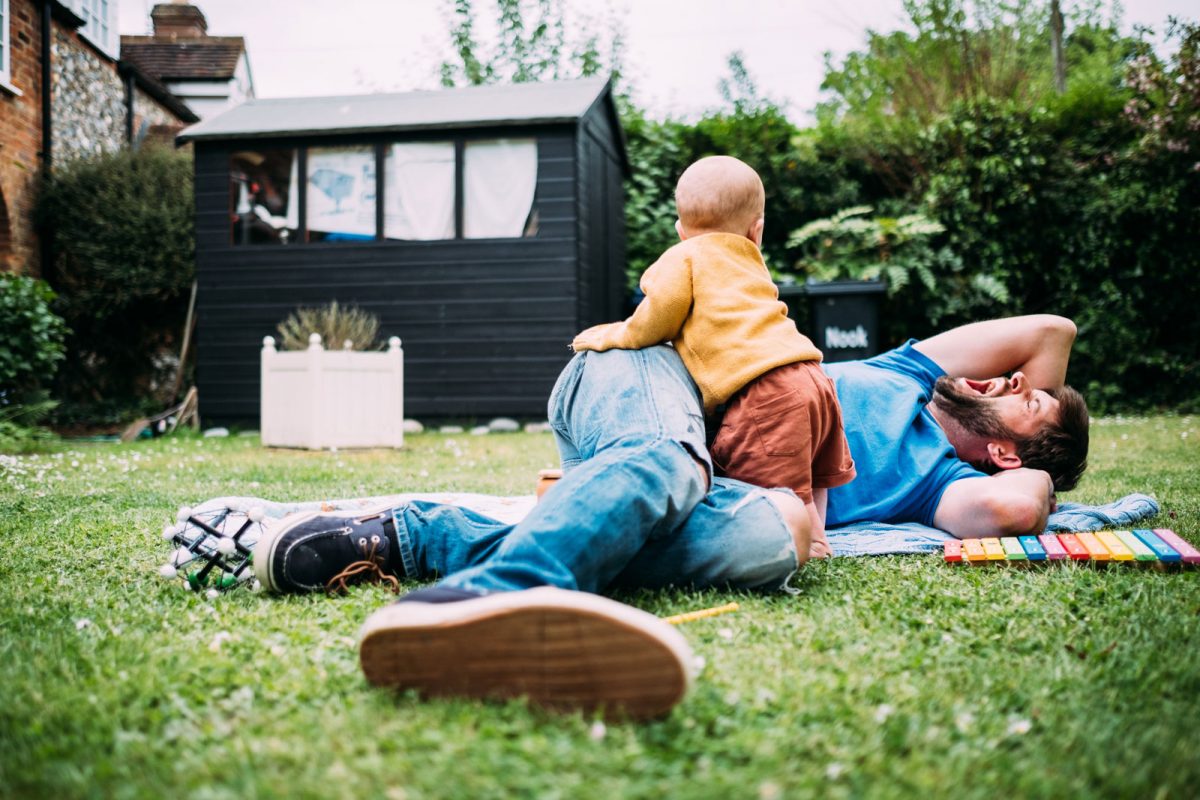
Emily Renier (UK) – Website / TiRF
“Documentary photography is important because it gives mums, it gives dads, it gives any person the right to breathe again.
Documentary photography is essential because it gives us a chance to remind ourselves of who we are and why sticking to who we are is not just okay, it’s a must for the sake of our mental health.
Documentary photography is a way of reconnecting with those we were starting to lose connections with. Ourselves.
Cases of anxiety and depression have risen steadily over the last 60 years and there are over 8 million of us Brits who suffer or have suffered from such a debilitating condition. And I have a sneaky suspicion that this is happening because we have become totally obsessed with stuff, with the past, with the future, instead of being committed to moments, and to our present state.
We are a generation that is being bombarded with expectations right, left and centre. You have children? You are told not to have them, it pollutes the planet. You don’t have children? You are told to have some to help build the future. Do you recycle enough? Why not? Do you recycle too much? Why not try the latest raw chocolate avocado cake recipe? Avocados? You mad? Do you realise how unenvironmentally friendly they are?
Whatever you choose to do, everyone has an opinion, and you are JUST NOT ENOUGH.
But what if you were. What if you were enough. And what if you learnt, all over again to just enjoy the moment. To enjoy the ordinary. To enjoy going for a walk in the park. To enjoy spending time with your family. To enjoy being you, without this constant black cloud of judgement hanging over your head. To, above all, have more belief in YOUR judgement, in YOUR way of being, in YOUR choices. And what if the ordinary, the beautiful, the bad, the ugly actually became trendy? What if instagram was now filled with people actually representing themselves as they truly are…
This is why documentary photography is so important to me. I want to help my clients not just feel that they are enough but KNOW that they are enough. That whatever they choose to do, actually, they don’t need to listen to the “noise”. They can leave their house untidy until they have enough energy to tidy it. They can ignore their child screaming for a little while because, what else are we supposed to do sometimes. They can be fed up with their day, they can be happy with the smallest of happinesses. They can get excited about a new pair of jeans bought from their local supermarket. They can be satiaied that their living room doesn’t have to resemble John Lewis’s show room.
They. Can. Just. Be. Because. They. Are. Enough.” – Emily
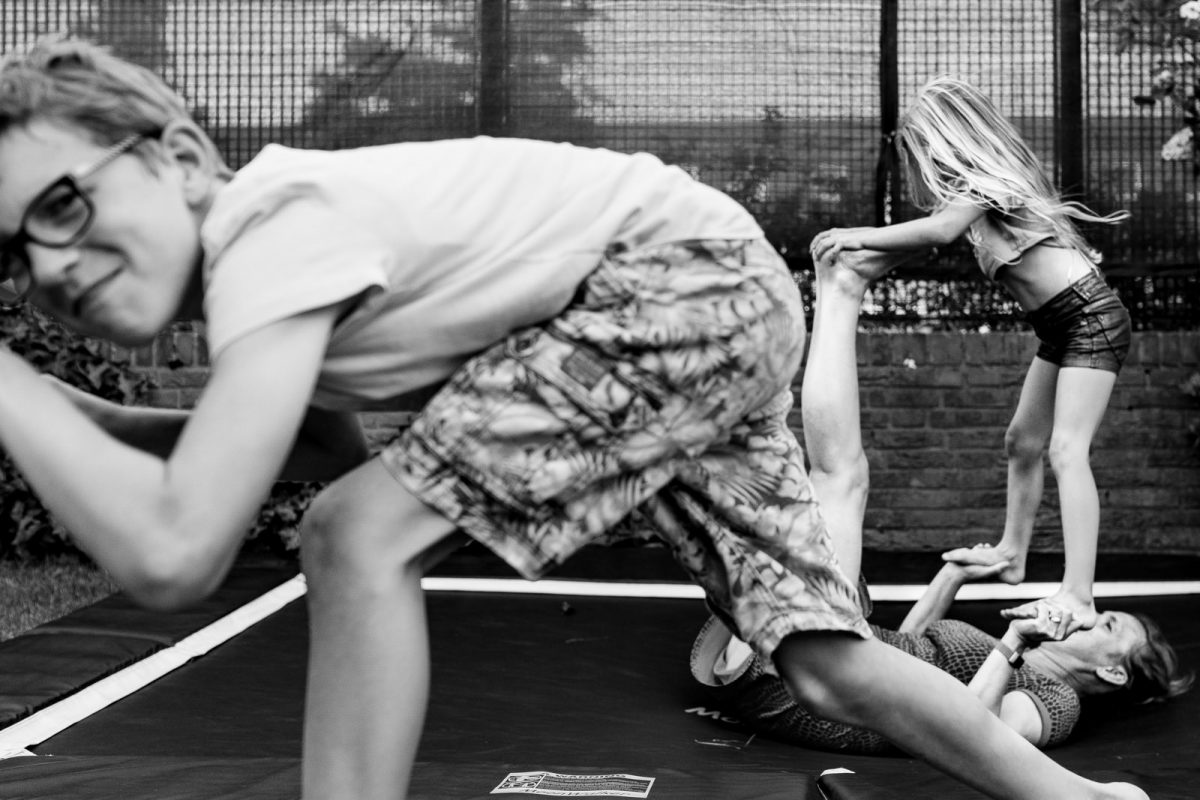
Theo Manusaride (Netherlands) – Website / TiRF
“I am a minimalist at heart. I believe in time spent nurturing deep connections with friends and family and only owning things that serve a purpose or that honour memories. My own family albums are something I treasure deeply. I gathered all the photos I had from 4 generations, handpicked them and carefully placed them in what is now the first thing I will save from my apartment if there was a fire.
I look at these portraits of myself as a child or the men and women that are my parents, grandparents and great grandparents and I try to remember how my life was when I was a kid and to understand how their life was back then. And though I truly cherish these portraits I am left wondering and imagining who they actually were as people or how life actually felt like back then.
In the digital era we have received this incredible gift of being able to take more than only a couple of pictures with our family in a lifetime. Our cameras can now capture all the time spent caring and nurturing for our tiny humans that now feels like never ending busyness, all the laughing while playing in the backyard, then crying cause they scraped their knee and smiling again cause mom put a bandaid with little puppies over it and dad made those silly faces.
We have the gift to revisit those small moments that seem so insignificant…until they’re gone. We can use this gift to take more than perfectly posed images of our families wearing matching sweaters in perfect light, we can give ourselves meaningful memories to sustain us in those moments when we wonder what we were thinking when we signed up for parenthood, and we can give our kids the childhood memories that we ourselves can only try to piece together from our own.” – Theo
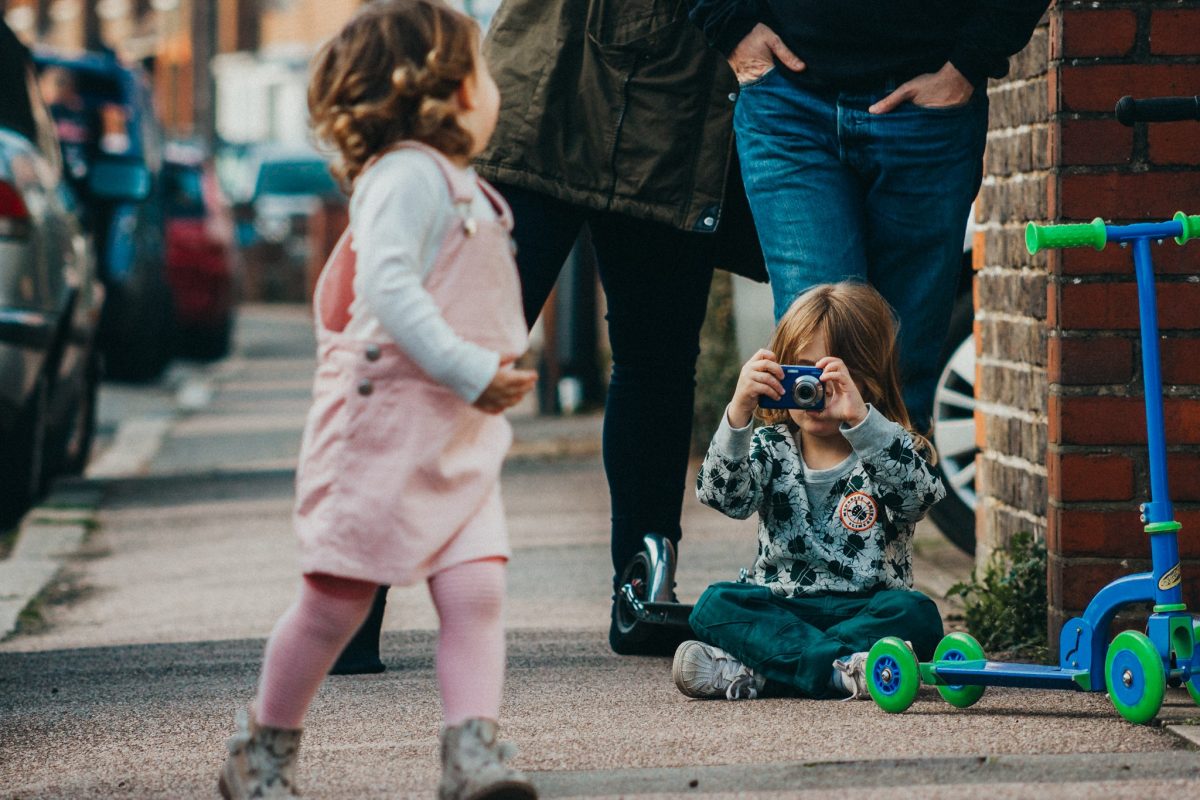
Will Sfakiotakis (Family photographer Sussex / UK) – Website / TiRF
“The greatest gift we can experience is the present moment. Enrich this with the grace of family, artistic wonder of photography, and you have a magnificent stiring of the soul! The importance of family documentary photography lies in its ability to keep giving us back the presence etched in time. What else can do this, and do it so well?
As we experience a family photograph we live that moment (even if it wasn’t ours) and become united to emotions with ourselves and or others. We feel connected, we feel, human. Each documentary family photograph is as unique as we are individually and thus must be cherished in the same way.” – Will
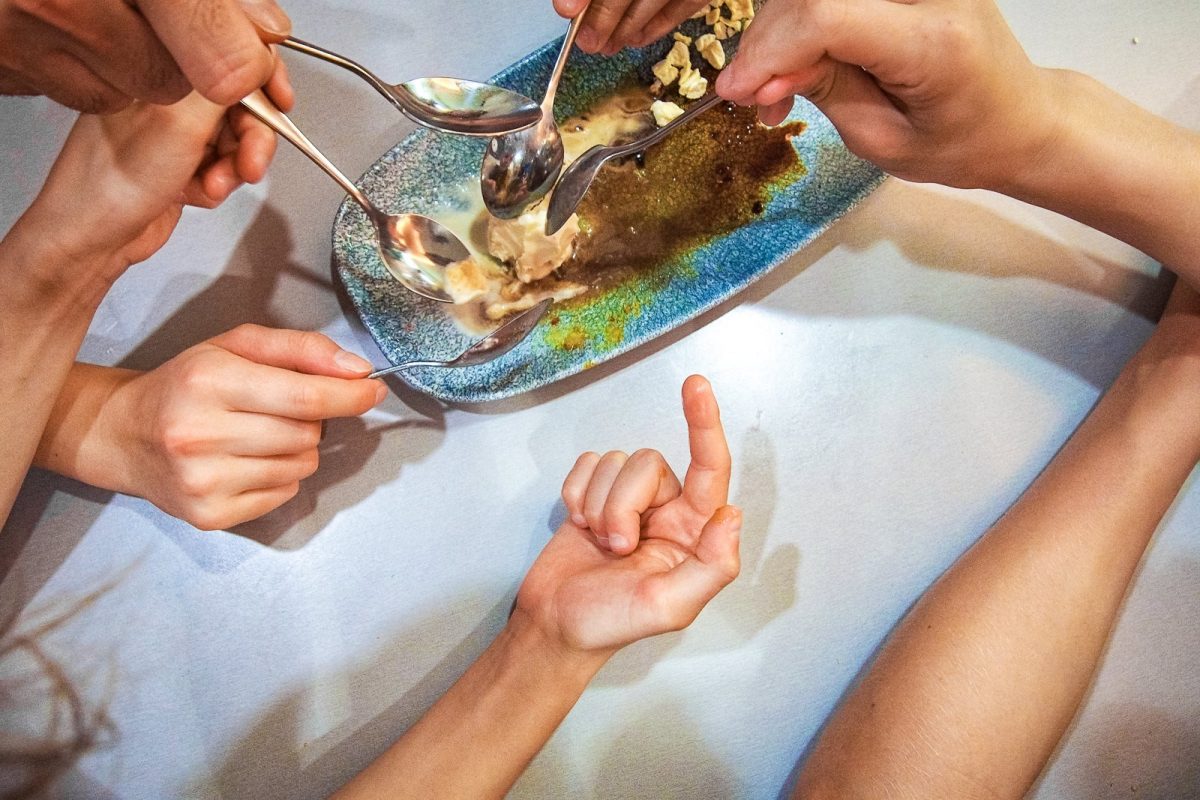
Katrin Küllenberg (Germany) – Website / TiRF
“Documentary family photography is like a treasure chest of memories. A studio portrait of your family only shows you the pretty faces you once had but a documentary image will bring back a whole story. We have four kids between 13 and 21 and there is much of them being toddlers that I do not remember anymore. But whenever I browse through our family albums (and, fortunately, there are tons), there are suddenly so many memories I can feel, hear, smell or taste and I am so grateful for all those wonderful moments we had and still are having.” – Katrin
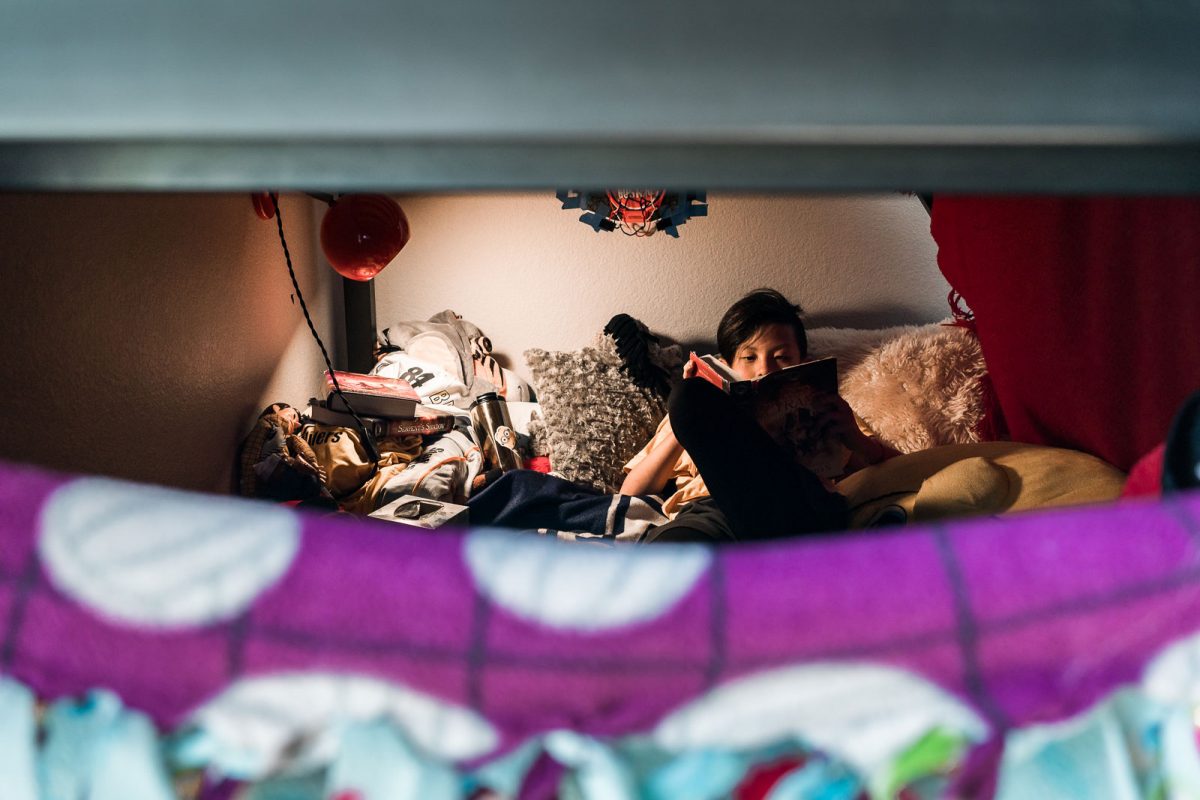
Lisa Hu Chen (United States) – Website / TiRF
“I would do anything to have a photo of my adolescent self doing homework on my bedroom floor as I often did, or organizing my collection of prized ceramic pigs. I don’t have a single print of that buck-toothed girl in her carefully curated and neatly decorated room; no documentation other than what exists in my fleeting memory that fades as the years go by. I grew up in the 80s with my hand-me-down, faux-vintage bedroom set, my taped Michael Jackson posters on the wall, and my dusty ring of giant, stuffed animals surrounding my insecurities and pre-teen angst. What did I really look like versus what I think I looked like? How did I hold myself up when all I wanted to do back then was hide?
These voids in my childhood memories are exactly why I’ve become obsessed with photographing my kids in their natural habitat, our home sweet home in all its raw and messy truth. My parents took photos of my brother and me, of course, but they were posed, scant, and quite often emotionless. Even now, I cherish those photo albums with a passion but I know they are missing quite a bit of how we lived and reveal very little about us as a family. It wasn’t until my 12th Christmas when Santa gave me a Kodak camera that my life became alive in print. Whether it was my parents’ intention to do so or not, I suddenly became my own documentarian.
Documentary family photography isn’t particularly mainstream or well known. The spectacular popularity of iPhones and smartphones, in general, has made it easier by the month for everyone to record their lives with ease and regularity. But, that differs so vitally from documentary photography in its authenticity. It’s not choreographed, directed, or filtered. Authentic moments can’t be too authentic if everyone’s clothes are coordinated and every background is light-infused and magazine-worthy. In truth, the very importance of documentary family photos doesn’t often get realized until it’s sadly too late, which means that having the foresight to invest in life’s rawness and daily grind becomes a priceless and invaluable family gift.
My Instagram feed is like an encyclopedia of yearbooks highlighting my children’s upbringing – a gallery of squared-off moments my husband and I have painstakingly chiseled and cracked, shaped by tiny morsels more than monumental events. Sure, those moments are curated, selected, and hand-clicked according to my mood. But collectively, they tell the story of my family in snippets and chunks, accompanied by paragraphs that reveal a lot, or short phrases that carry a heavy weight. Through my lens and my children’s actions, we are able to record and archive our family history. It may not be pretty or perfect, glossy or pristine. But, it’s real and it’s ours.” – Lisa
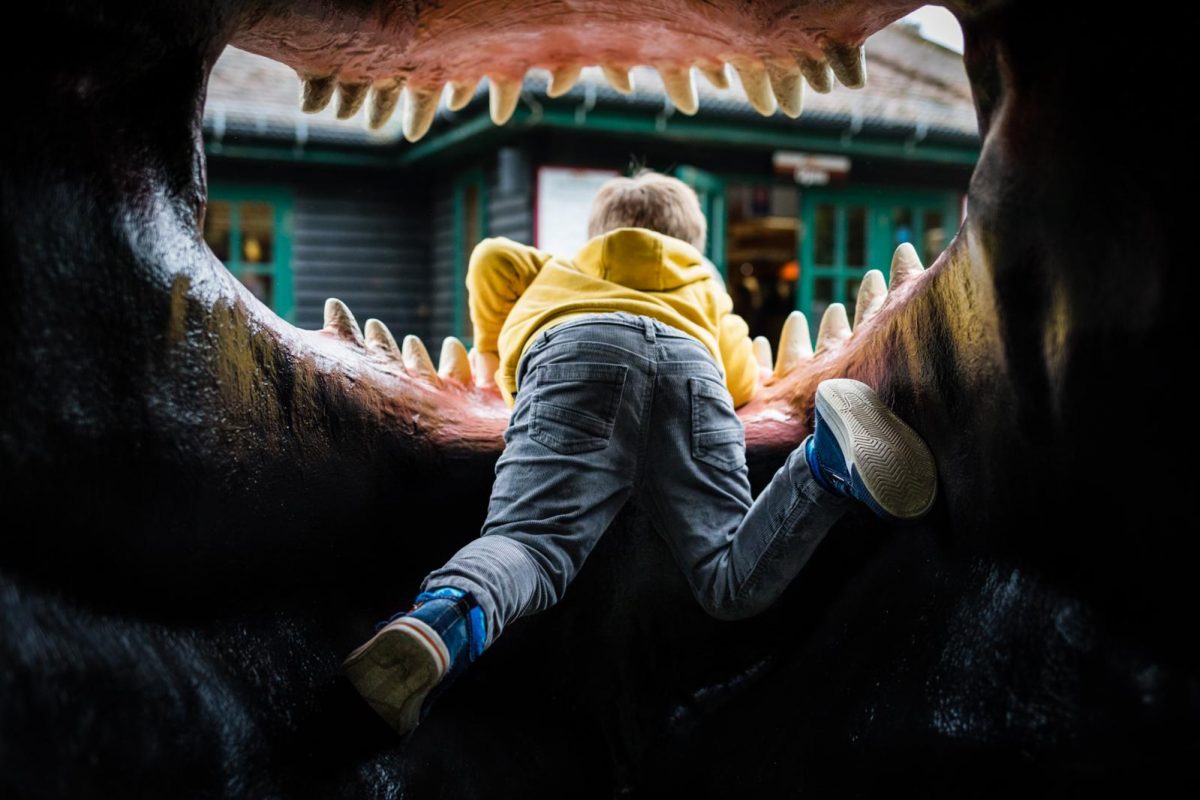
Alice Chapman (UK) – Website / TiRF
“Why is documentary family photography so important? I could talk about this all day…
First off, to quote from Fleabag, people are all we’ve got. One day all we’ll have of those people is the impression they left on the world – objects handed down, memories and images. Which version of ourselves do we want to leave behind? A photoshop-facial and a guided colour palette may seem… nice I suppose… but it’s not really us, so will it be important or valuable later on? Probably not. We’re important to each other as we are – simple as that.
When our kids look back at their childhood family photos what do we want them to see and feel? Documentary family photographs can bottle character, show what life felt like as well as what it looked like, transport you back like music or perfume and make your heart thump; all of this because they capture something real. Real is what we want to remember and how we want to be remembered. Real is important.
And in the meantime? What do we get out of it today? For me, it’s all about championing the individuality of kids, parents and families being their true everyday selves. Great documentary family photography celebrates family life and the unique people in it, and that might just make us all stand taller. And personally, documentary family photography helps me enjoy those real life moments with my own kids after the dust has settled. Parenting isn’t always easy and my sense of humour doesn’t always hold up. It’s important to appreciate what you have while you have it.” – Alice
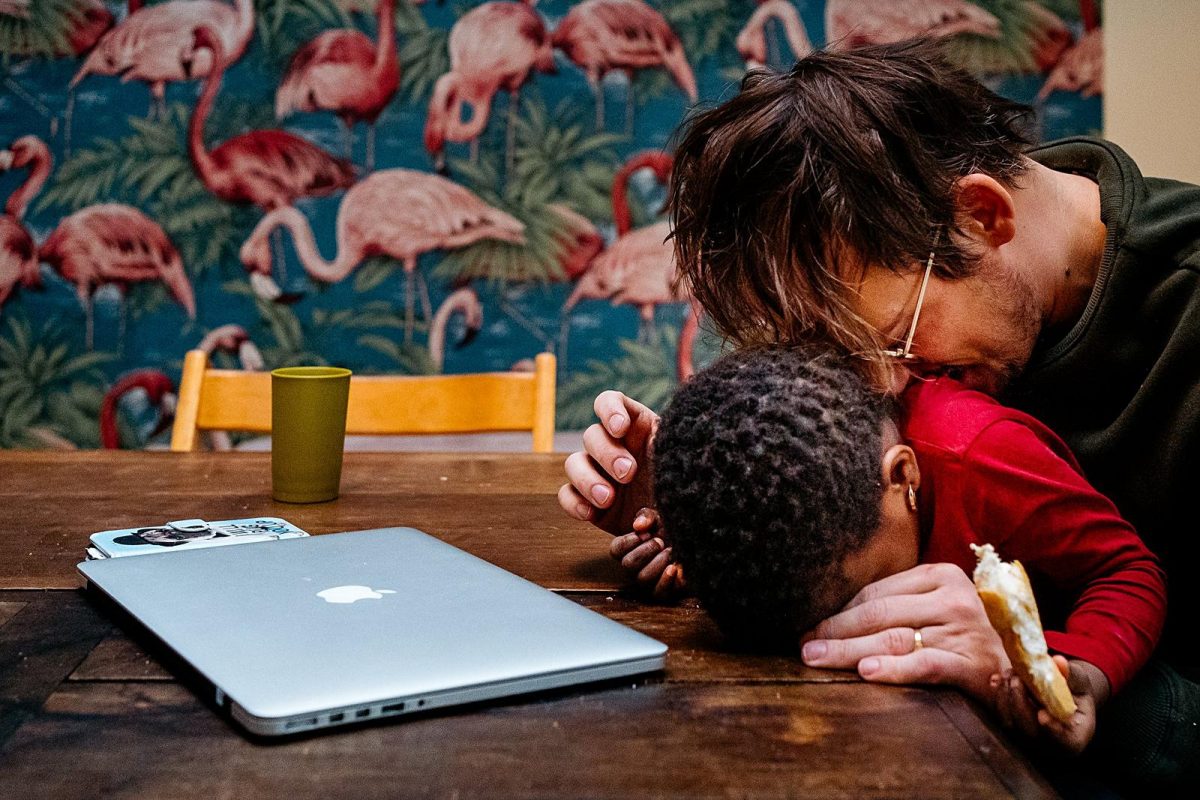
Soven Amatya (UK) – Website / TiRF
“Documentary family photography is about capturing your real-life. It’s totally unscripted and free-flowing, it’s about capturing the relationships and interactions between family members, and also their personalities. When you look through the photographs, you not only see how it looks, but you also remember how you felt.
If you have a series of documentary family sessions over several years, you can see how the family has changed, the personalities, the relationships and interactions. You end up with photographs that become timeless memories, not just for you, but also for future generations.” – Soven
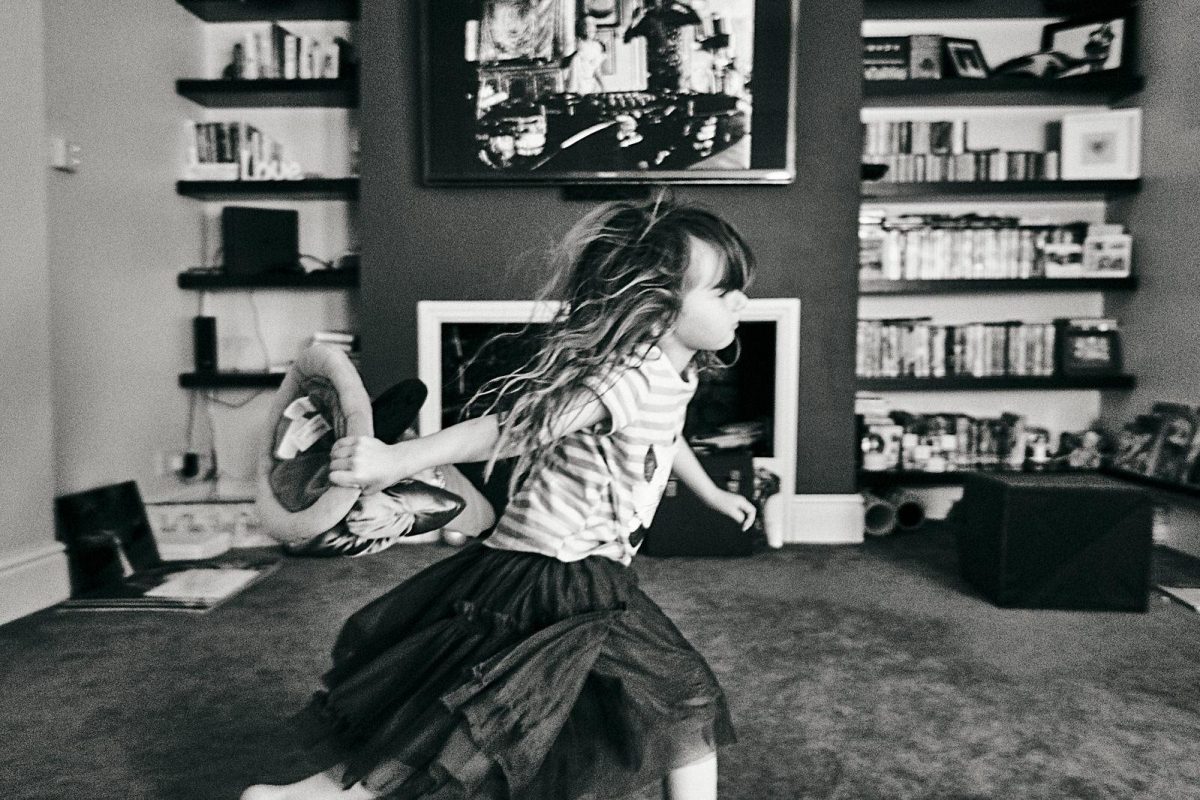
Charlene McNabb (UK) – Website / TiRF
“For me documentary photography is about seeing your family life and connections from the outside looking in. I know for me and many of my parents it’s weirdly reassuring seeing what a great parent you are, how much you’re adored and the strong bond you all have despite spending most waking days feeling like you’re failing and/or struggling at times. You can’t get that from a posed photo. If anything, I feel ‘posed’ sessions leave you feeling more stressed because you’re overthinking it and worrying about people smiling and being on their best behaviour!
I know I tend to book family sessions for me. Totally selfish I know. But I’m the picture taker and I’m rarely in the photo. Just one amazingly natural documentary image of me with my family is all I need and it takes a pro to get it because my husband doesn’t think like we do as documentary family photographers ;)” – Charlene
**************************************
Have you been inspired to have your family captured in a documentary way? You can browse through the work of our members who contributed to this piece above, or head over here to view all of our photographers by location.
Photographers, we’d love to have you with us! Join our worldwide community and show your work amongst the best. Members receive lots of benefits, including an unlimited number of images on your profile, 60 Reportage Family Award entries (for individual captures) and 18 Family Story Award entries (for a series of 15 – 20 images of a single family) per year, exclusive discounts and deals, invites to our meetups and parties, exclusive educational resources (coming soon), and much more…
Deadline for our very first Awards is 23:59 BST on 24th July 2020.
